Downing Street is under fire after refusing to guarantee an independent inquiry into its handling of the coronavirus pandemic, despite mounting criticism.
Dominic Raab agreed there would be “lessons to be learned” when the crisis is over – but ducked a call to ensure a judge is appointed to explore what mistakes might have been made.
The stance was later echoed by Boris Johnson’s spokesman, raising suspicions that ministers are reluctant to see an Iraq War-style probe held.
Download the new Independent Premium app
Sharing the full story, not just the headlines
In recent days, criticism has grown that ministers have failed to provide healthcare staff with protective equipment or carry out tests on the scale frequently promised.
One analysis now suggests the real death toll from coronavirus in the UK is already above 40,000 – twice the total once described by an NHS chief as “a good result”.
Mr Raab came under pressure in the Commons from Ed Davey, the acting Liberal Democrat leader, but the stand-in prime minister replied: “I won’t take up his offer of committing to a public inquiry.
“I think that there are definitely lessons to be learned and, when we get through this crisis, it will be important that we take stock and we come together to understand with an unprecedented challenge on an international scale what can be done to avoid it happening again.
“But I think right now, from our key NHS frontline workers to the members of the public, they would rightly expect our full focus to be, as we come through the peak of this virus, to make sure that we save lives, protect the NHS and steer the whole country through this crisis rather than engaging in that process or that set of deliberations right now.”
Speaking afterwards, Sir Ed said: “It is deeply concerning that the government are avoiding even committing to a future public inquiry into the coronavirus crisis.
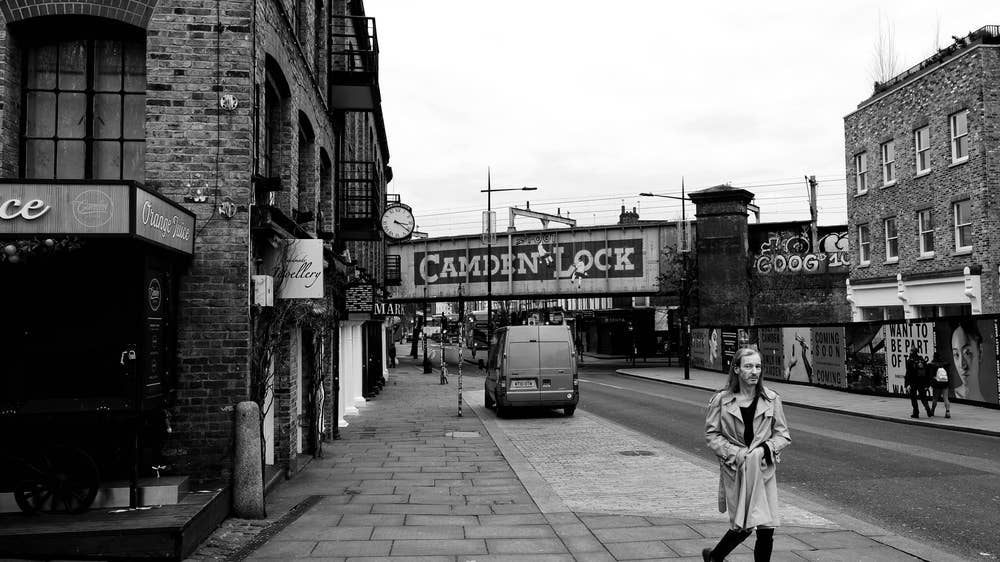
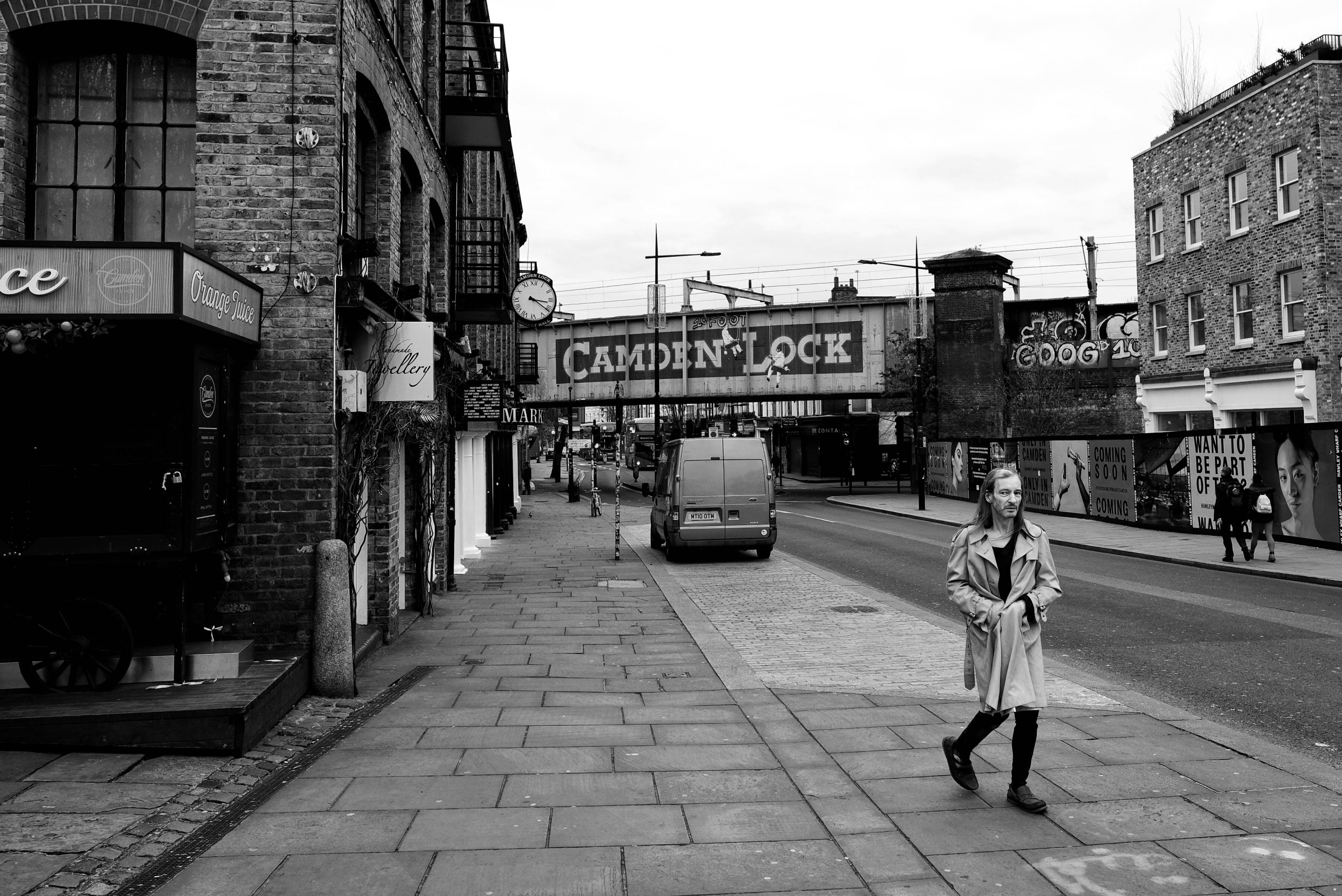
1/29
A man walks down a deserted Camden High Street
Photos Angela Christofilou
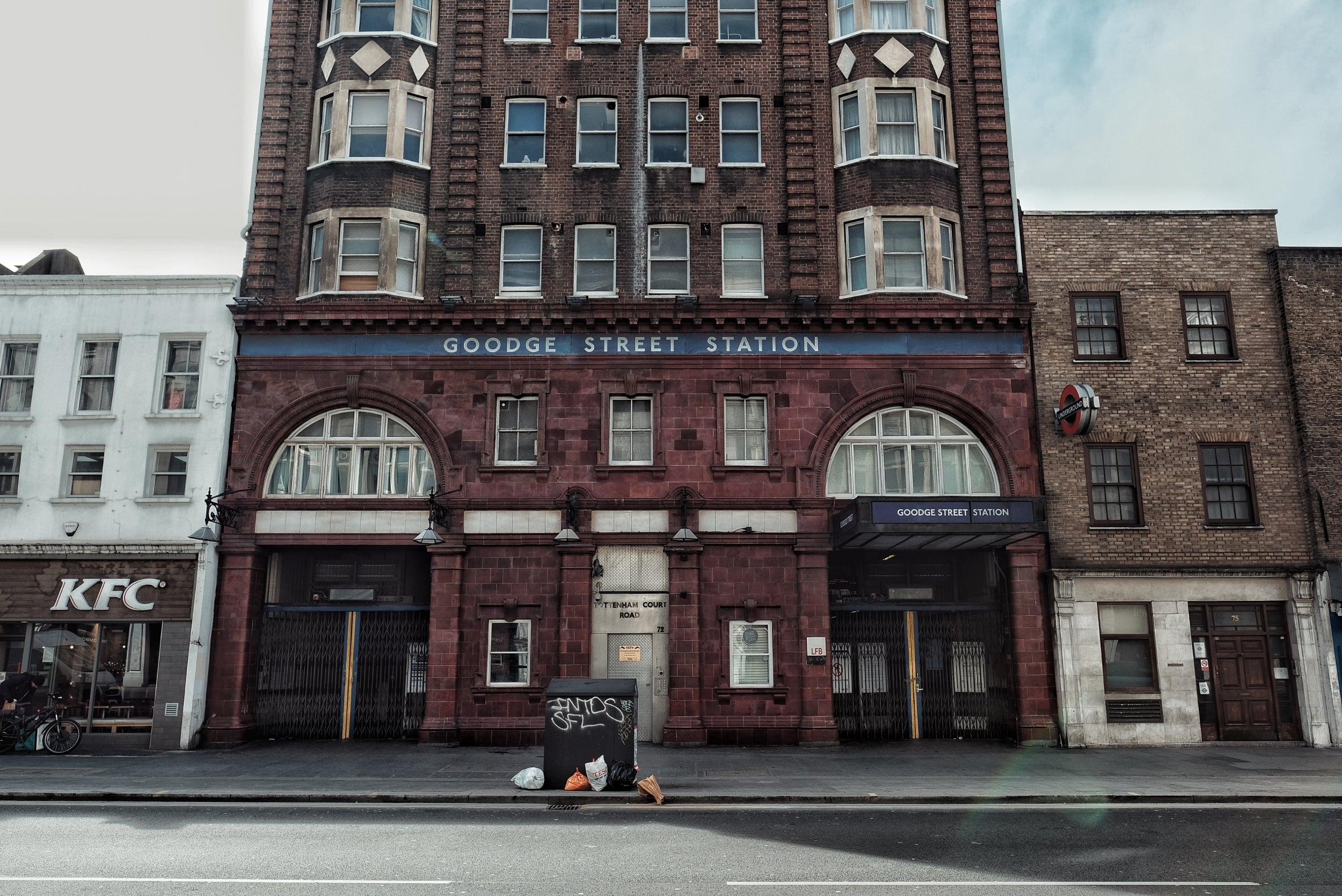
2/29
Goodge Street Station is one of the many stations closed to help reduce the spread
Angela Christofilou
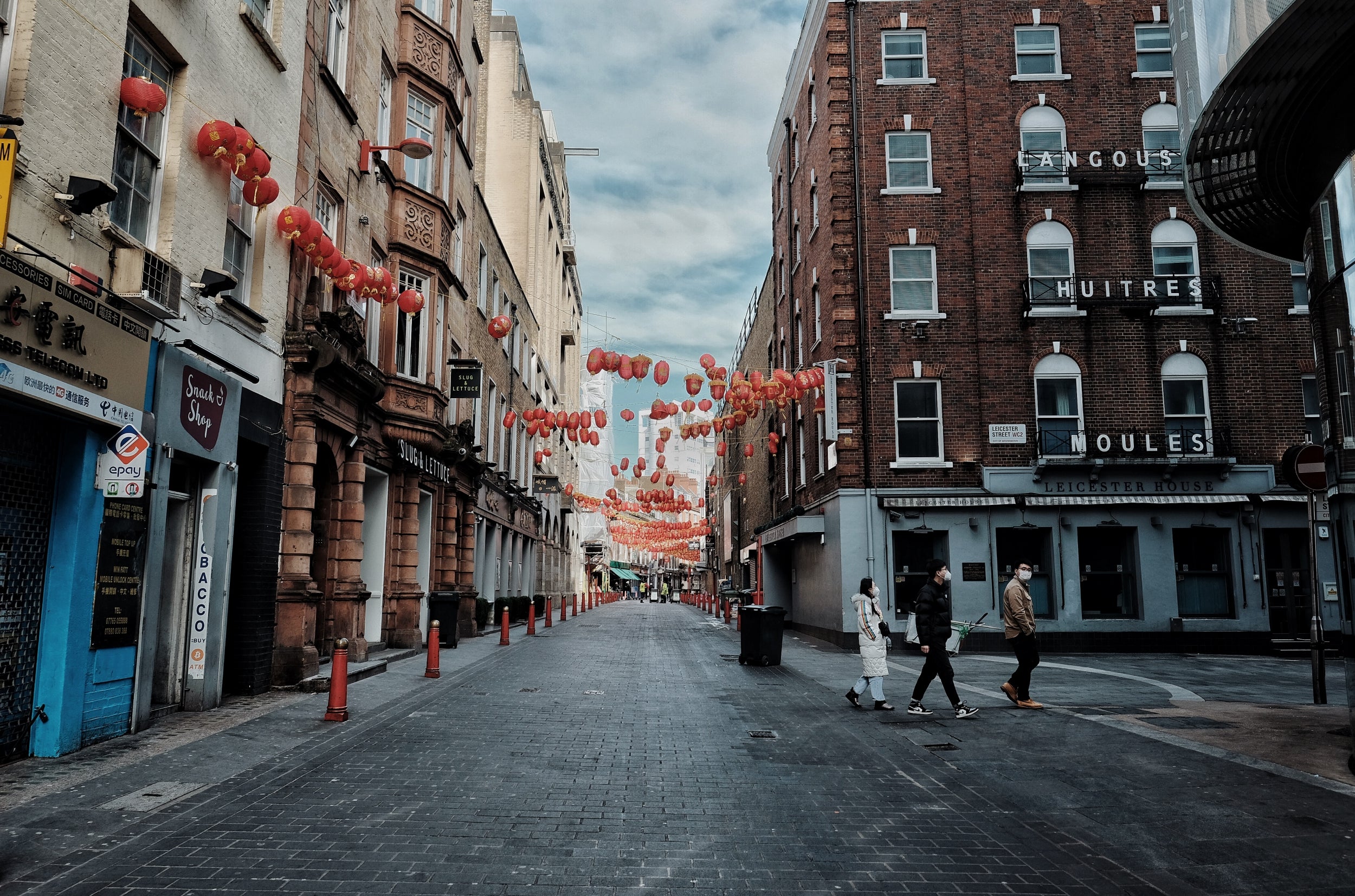
3/29
An empty street in the heart of Chinatown
Angela Christofilou
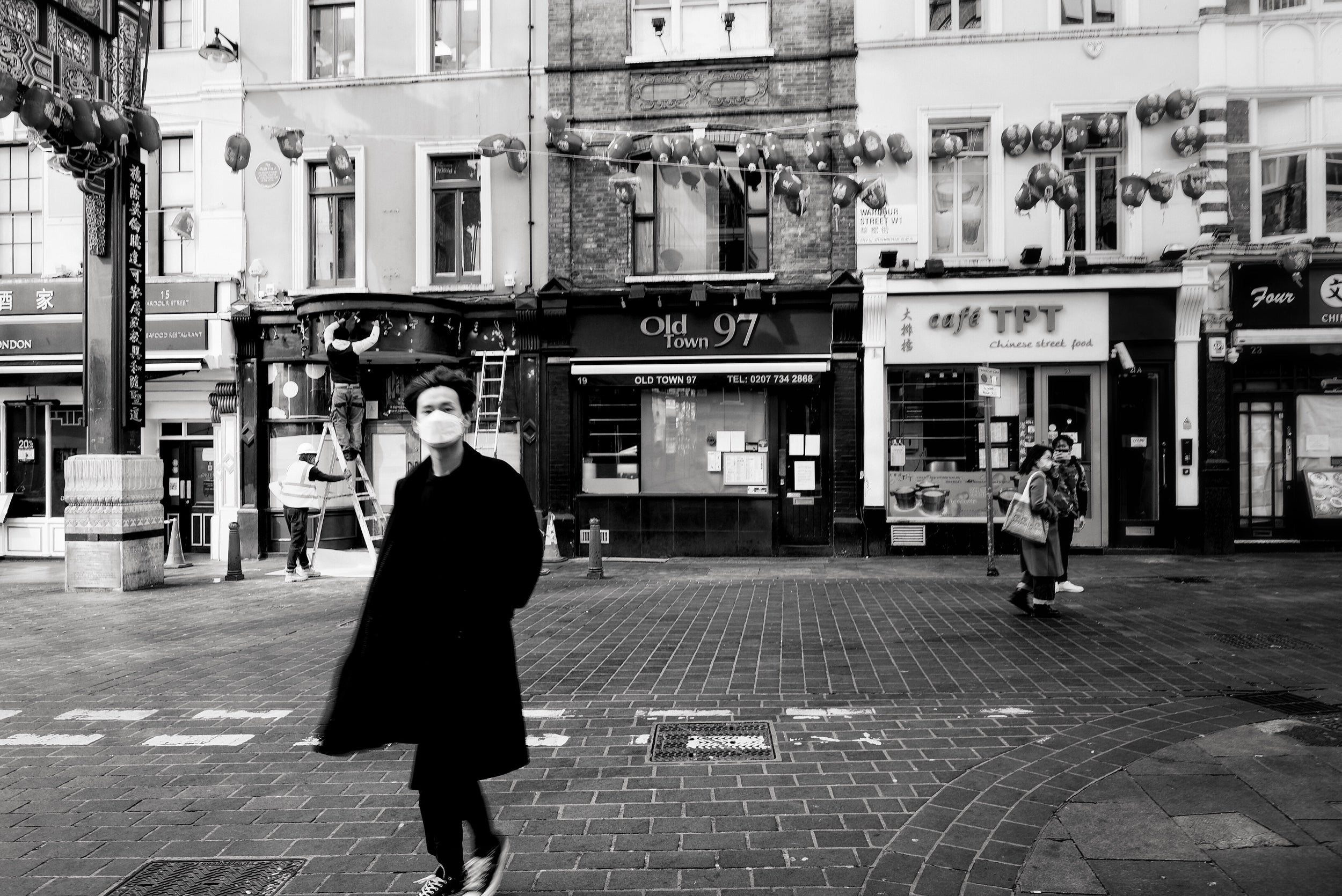
4/29
People in masks in Chinatown a day after the lockdown
Angela Christofilou
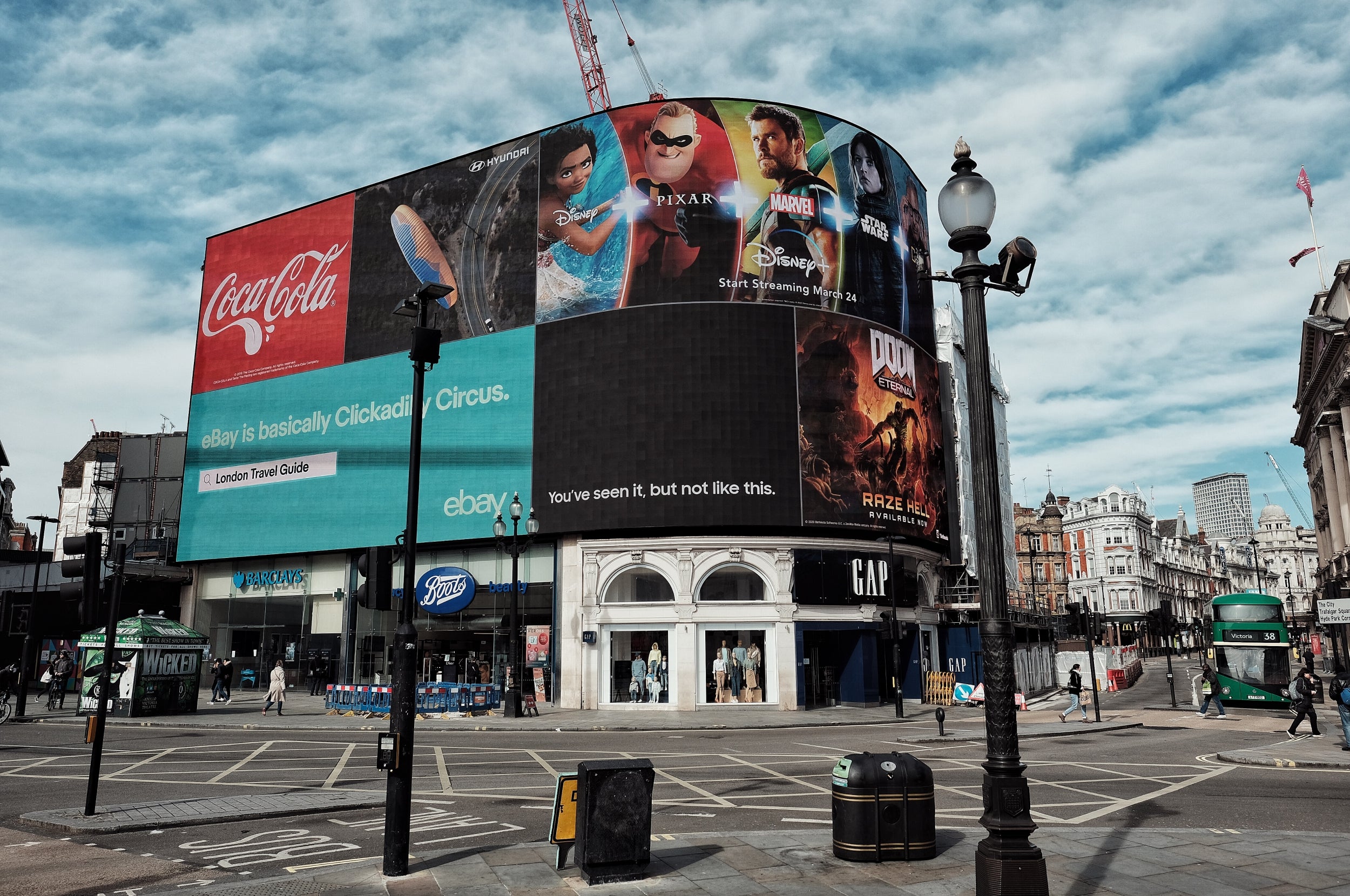
5/29
A near-empty Piccadilly Circus during the first week of lockdown
Angela Christofilou
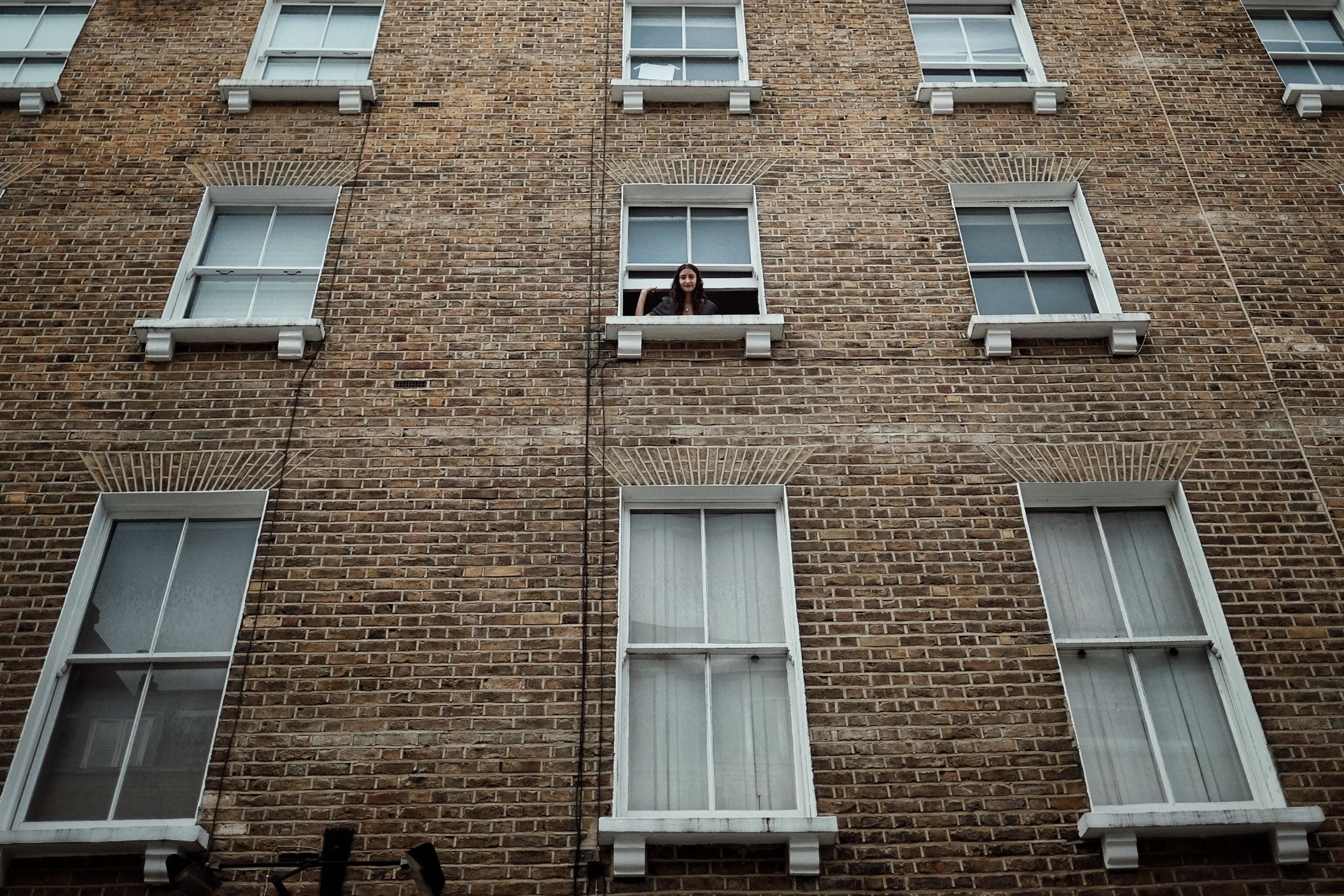
6/29
Sonja, my neighbour, who I photographed while taking a short walk. It was nice to briefly chat even from a distance
Angela Christofilou
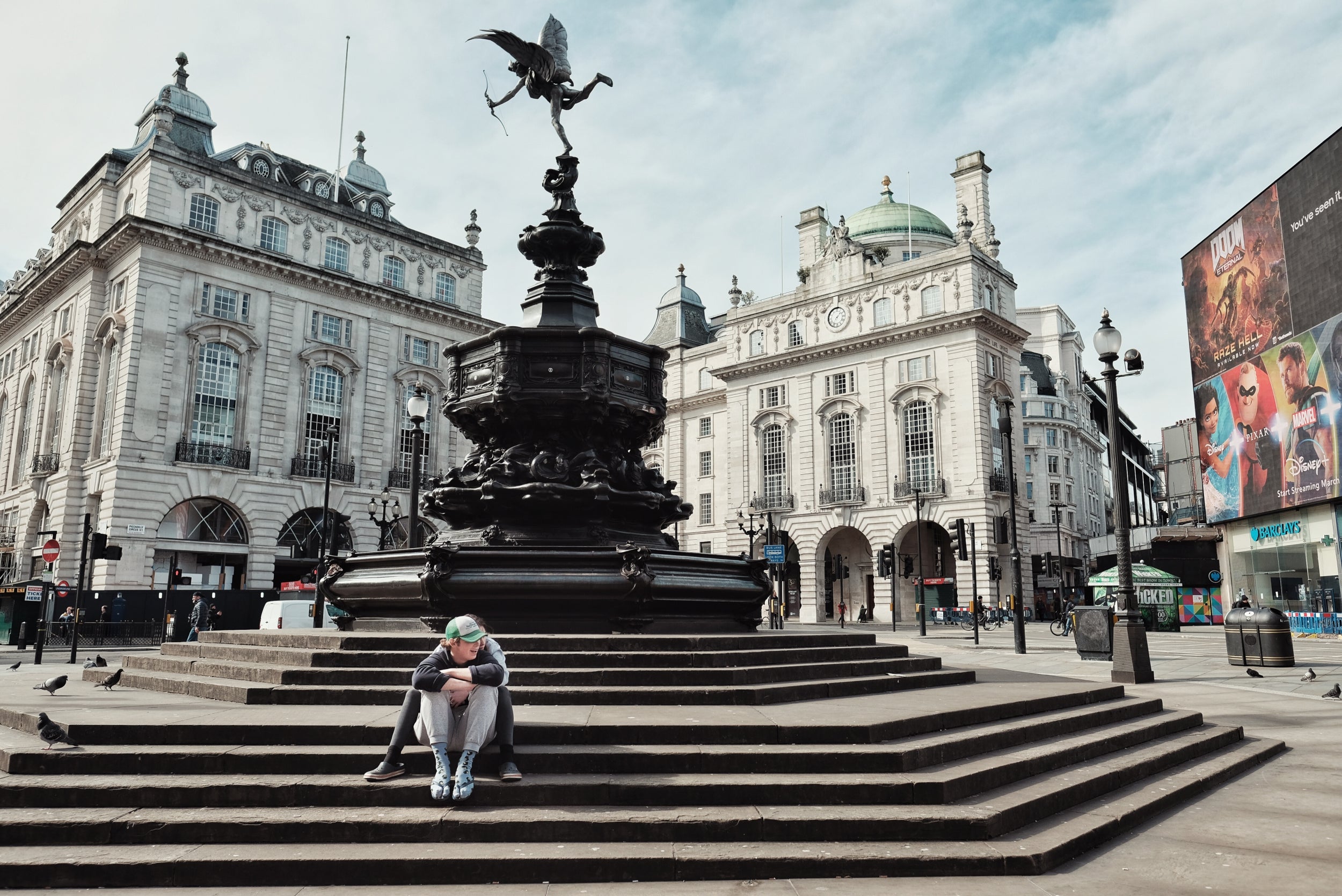
7/29
A couple sit on the empty steps of the statue Eros in Piccadilly Circus
Angela Christofilou
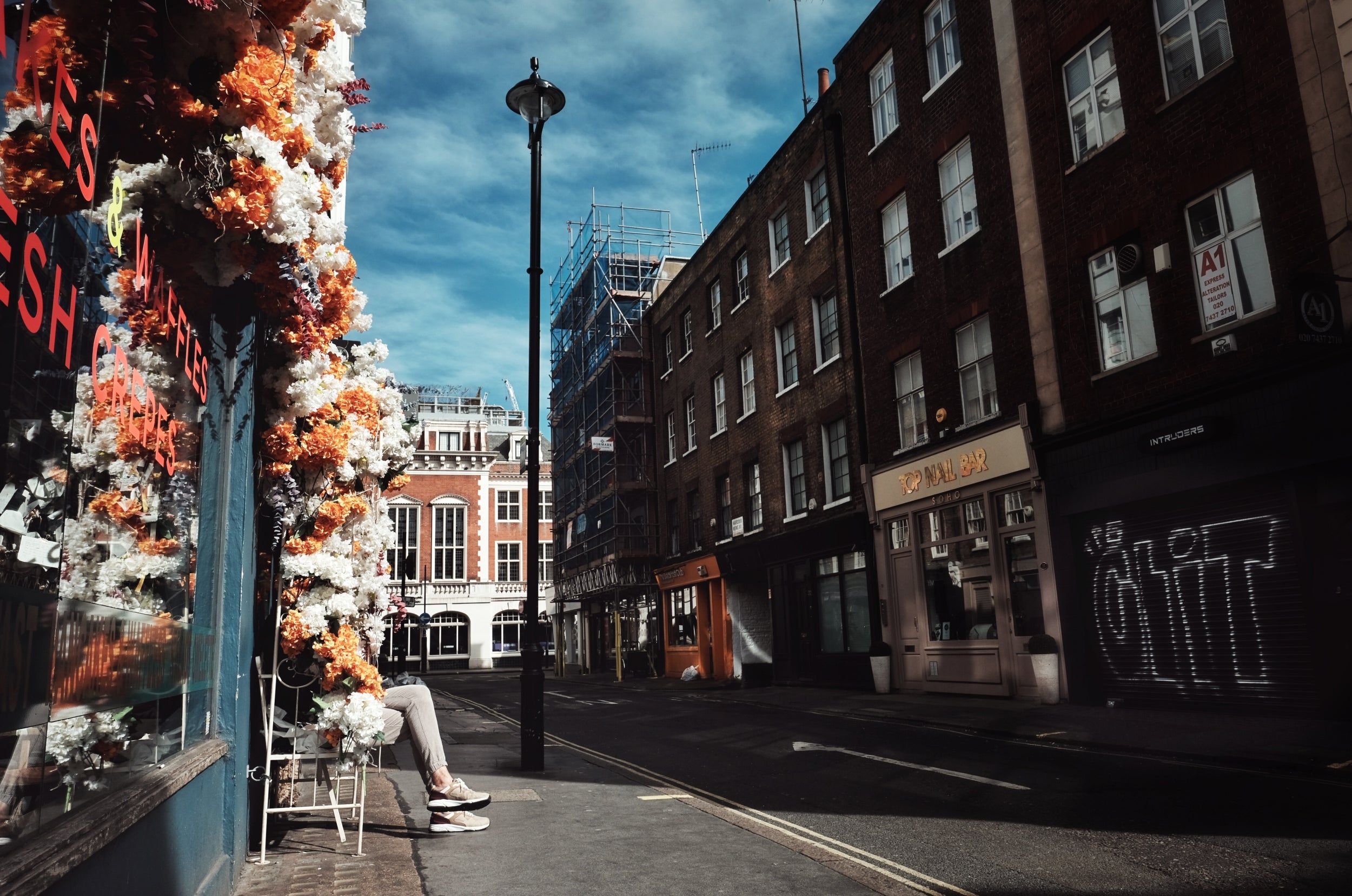
8/29
Making sure I stay two-meters apart – D’Arblay Street, Soho
Angela Christofilou
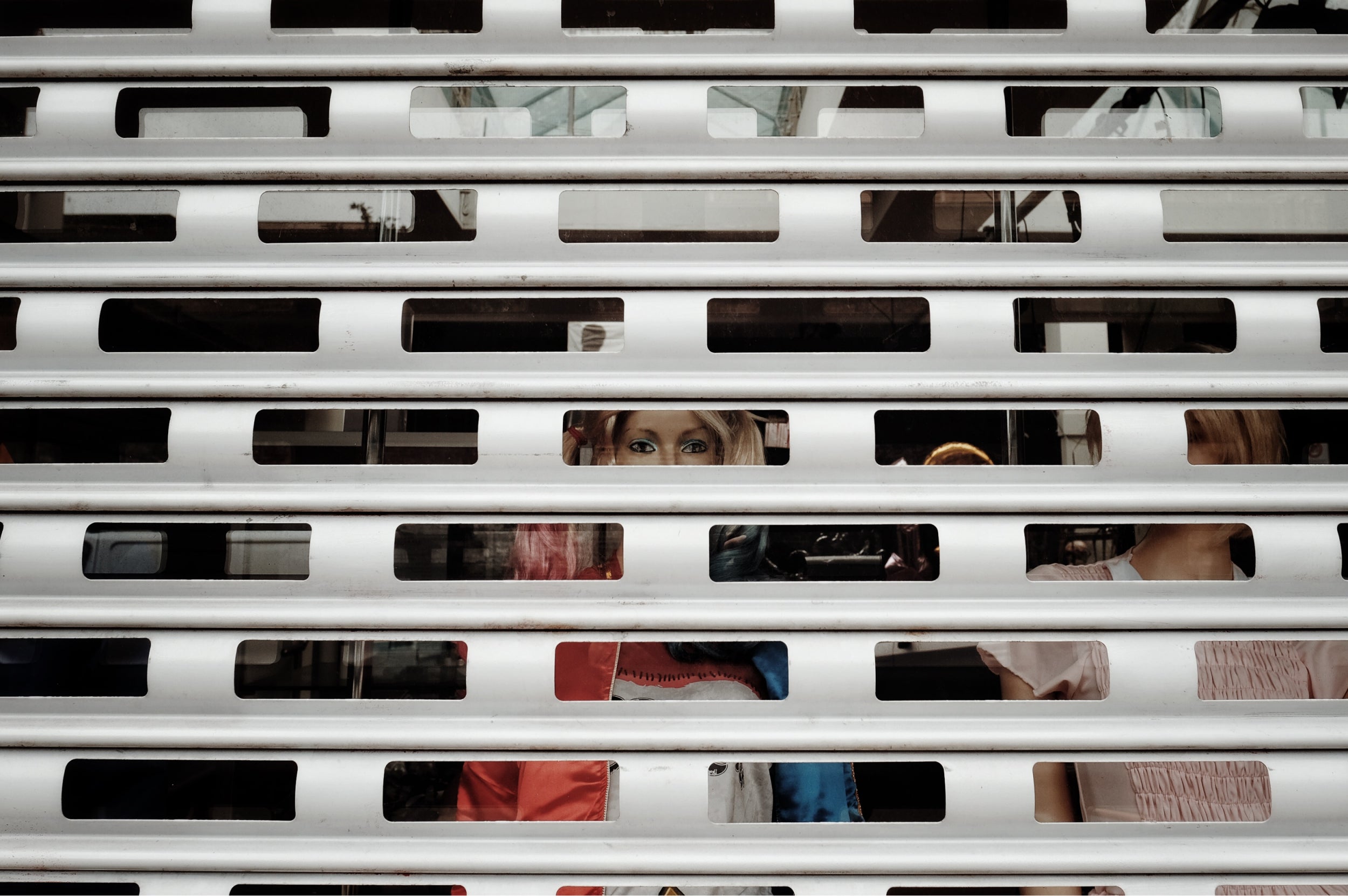
9/29
A mannequin behind a shop window. UK stores have closed until further notice
Angela Christofilou
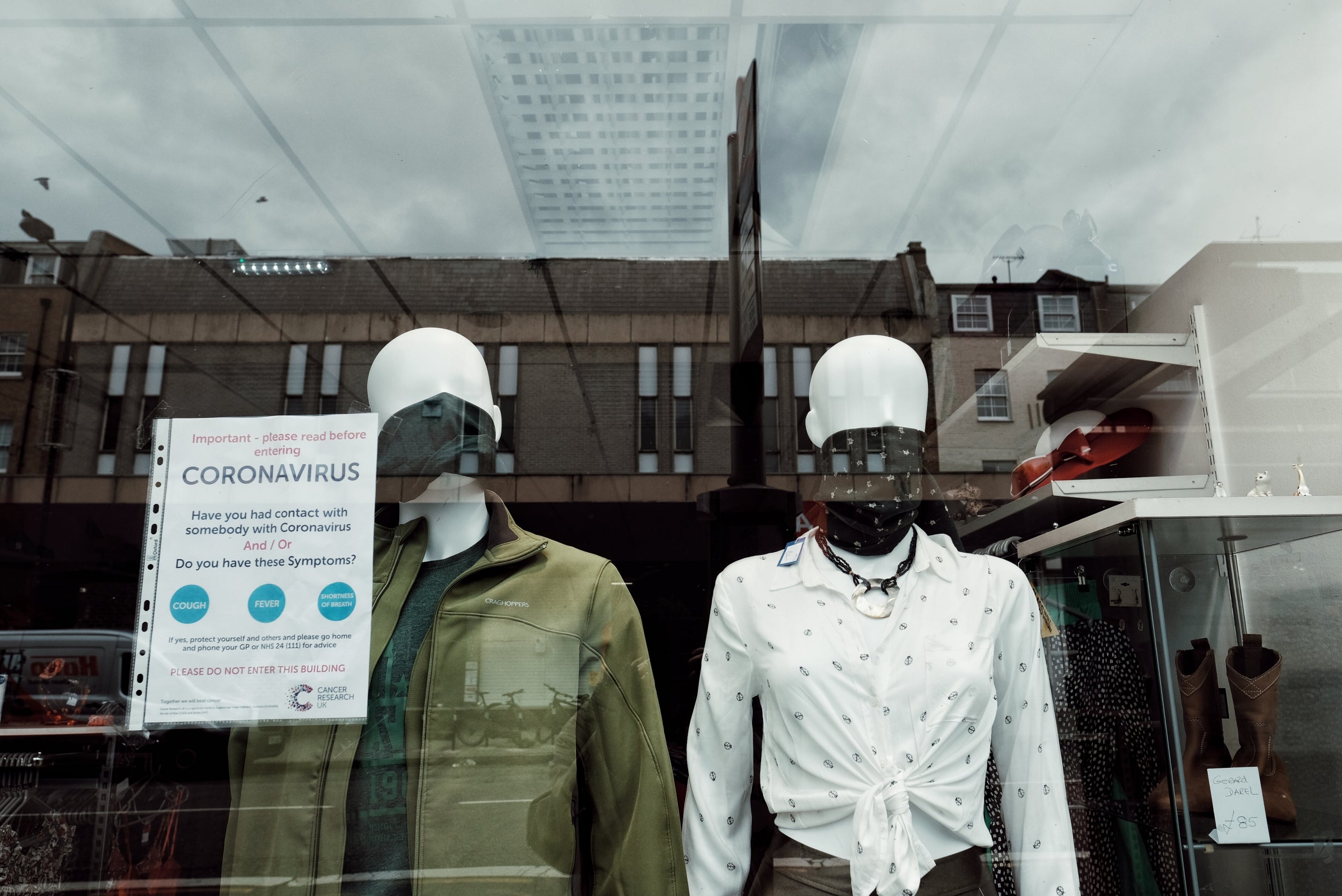
10/29
A notice displayed on a shop window in Camden
Angela Christofilou
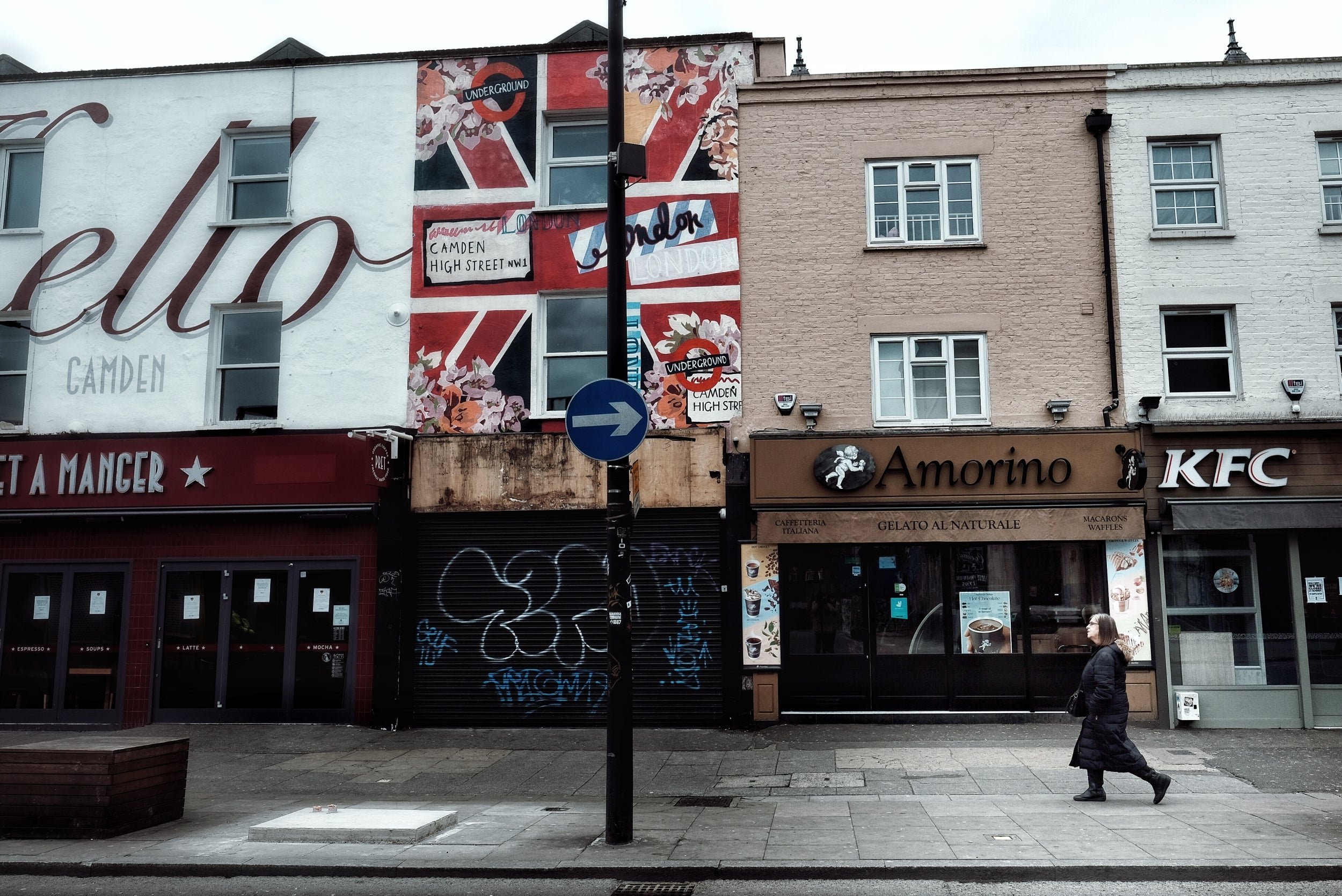
11/29
As part of the lockdown, all non-essential shops have been ordered to close.Image from Camden High Street
Angela Christofilou
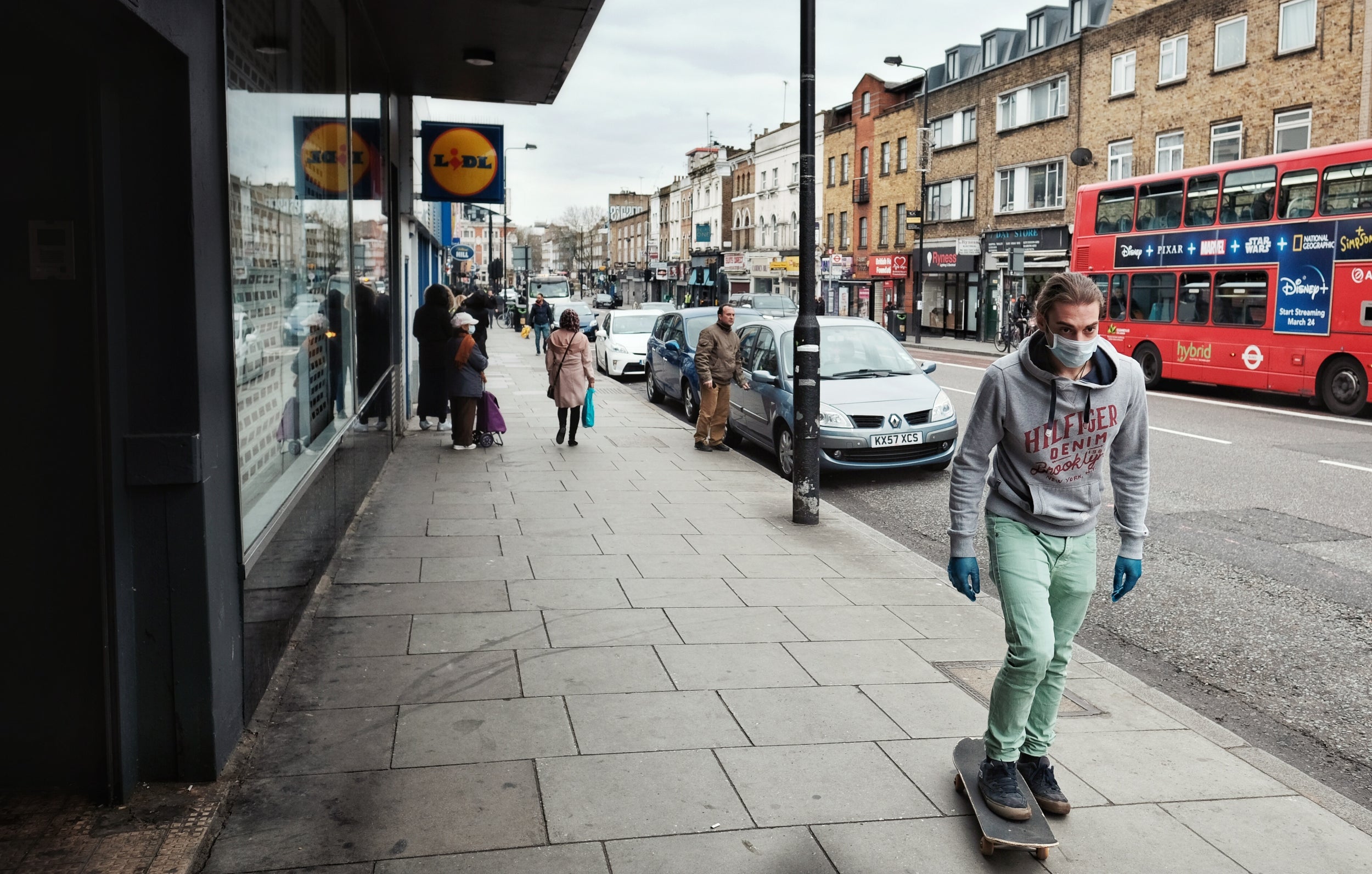
12/29
A skateboarder wearing a mask utilises his exercise allowance in the Camden area
Angela Christofilou
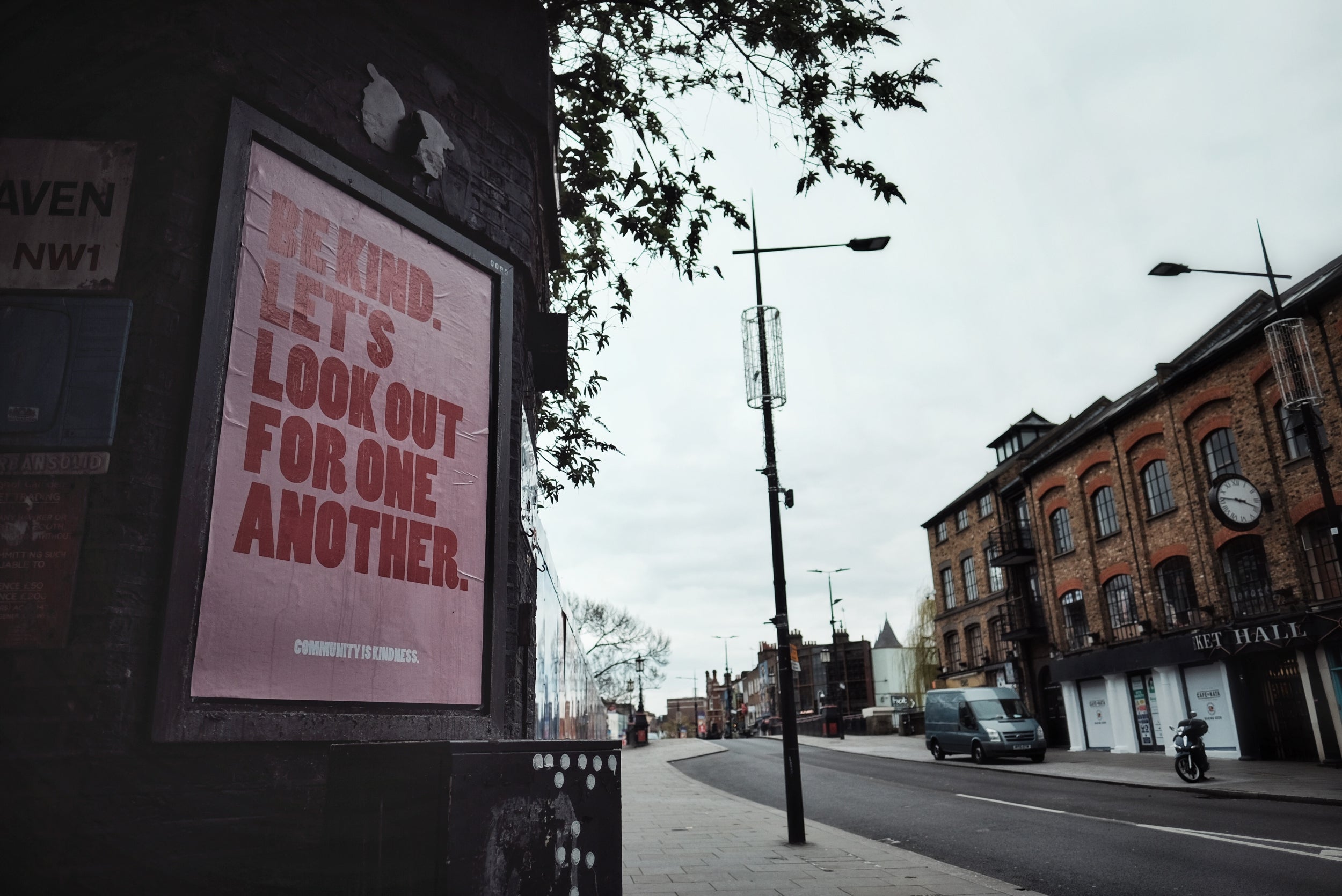
13/29
Communities have been coming together in a time of need
Angela Christofilou
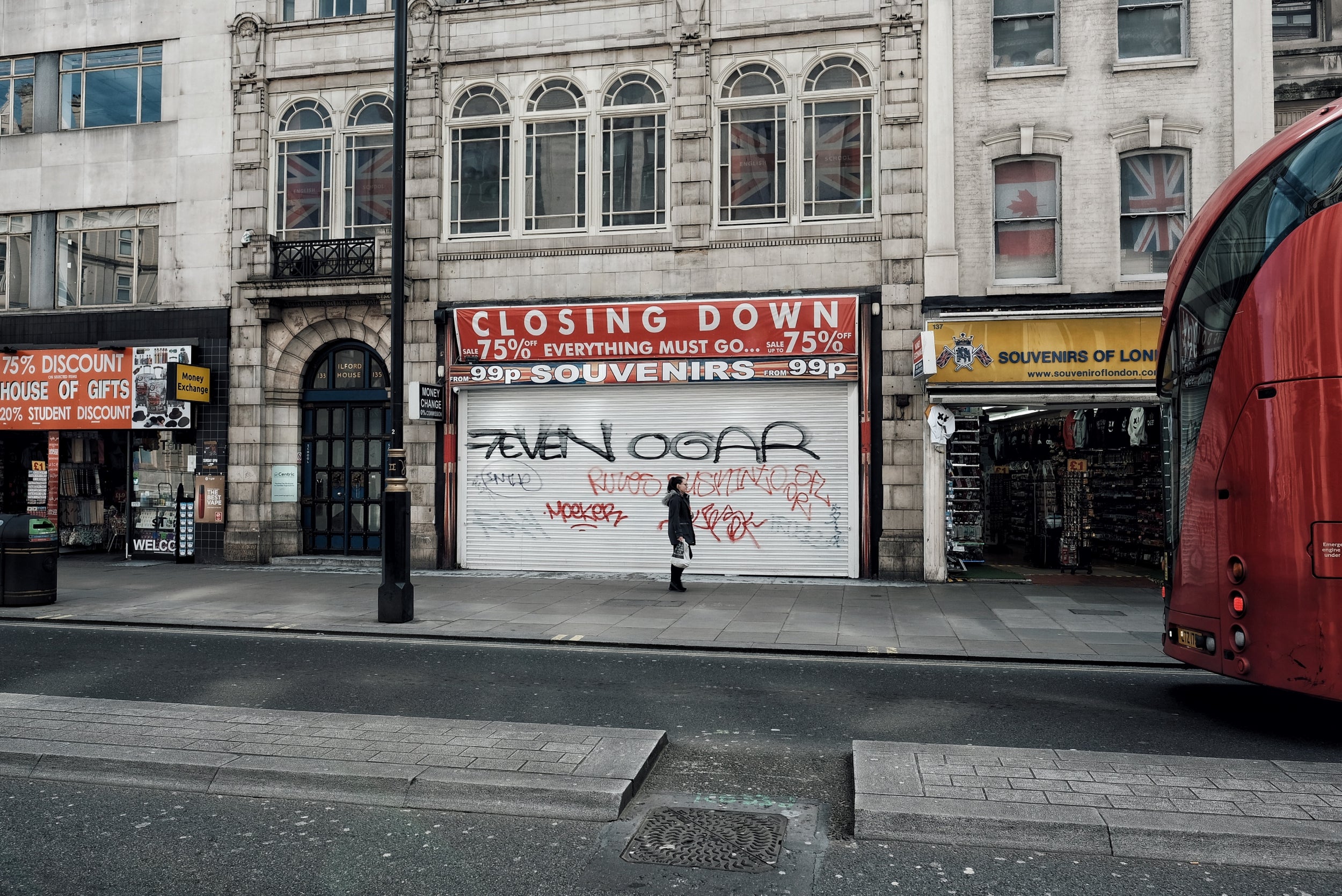
14/29
A woman stands alone in a deserted Oxford Street. Up until a few weeks ago, on average, half a million people visited the street per day
Angela Christofilou

15/29
A couple walk hand in hand down a street in Soho, a day before the stricter lockdown was announced
Angela Christofilou
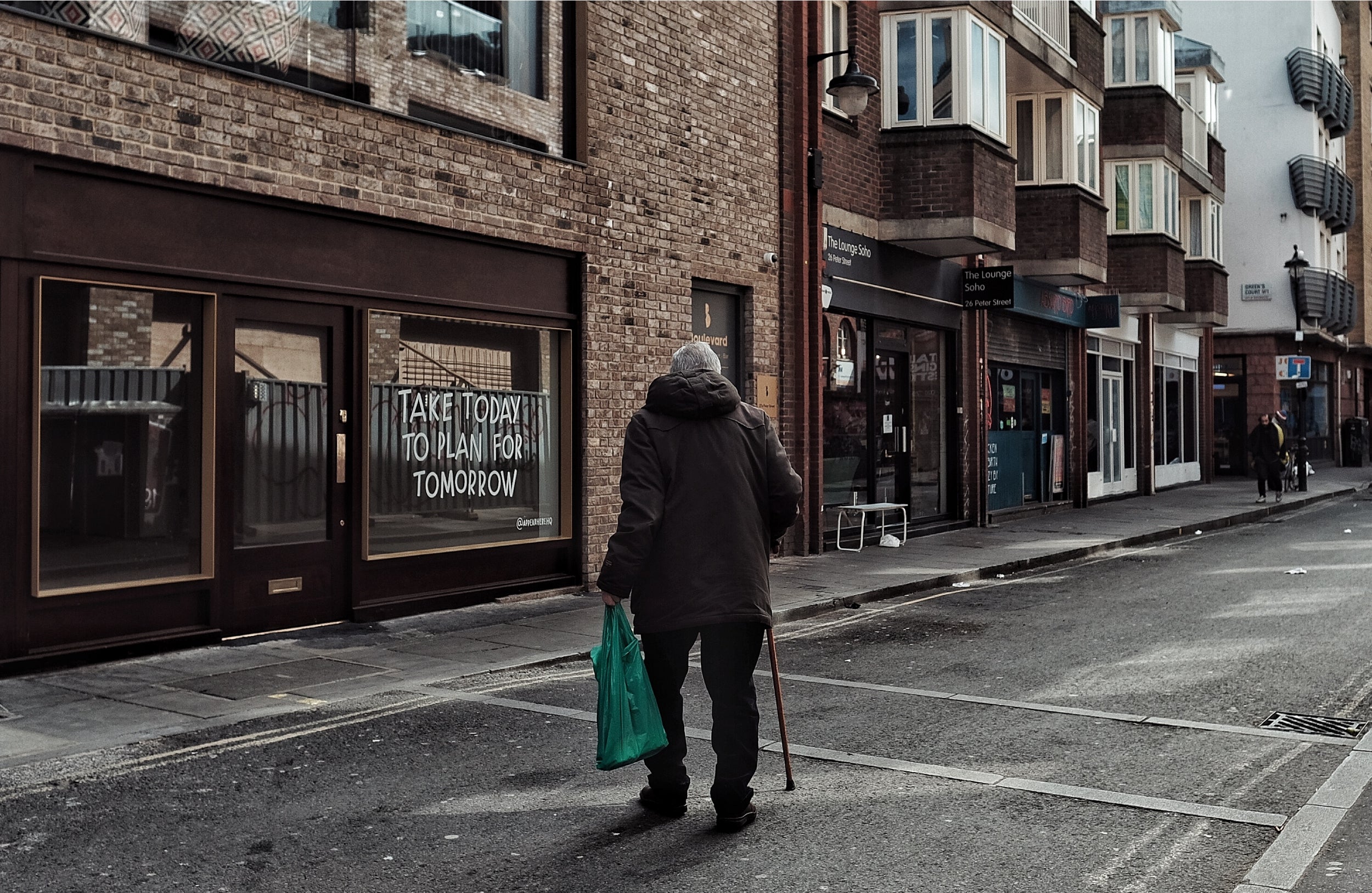
16/29
During the first week of March, shoppers focused on stockpiling necessities ahead of a countrywide lockdown
Angela Christofilou
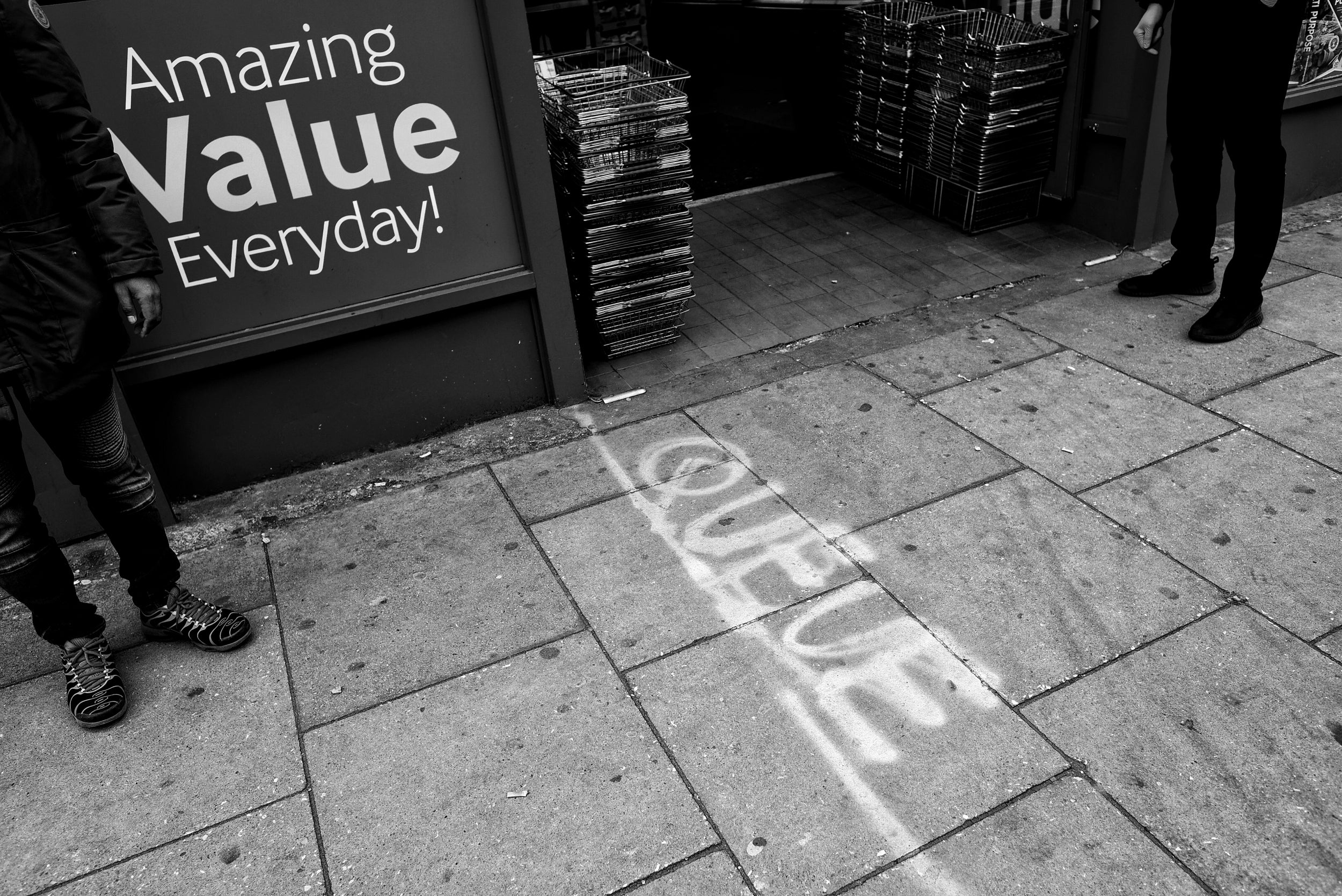
17/29
Many supermarkers are operating a queuing system to make sure only a limited amount of customers are allowed in at anyone time
Angela Christofilou
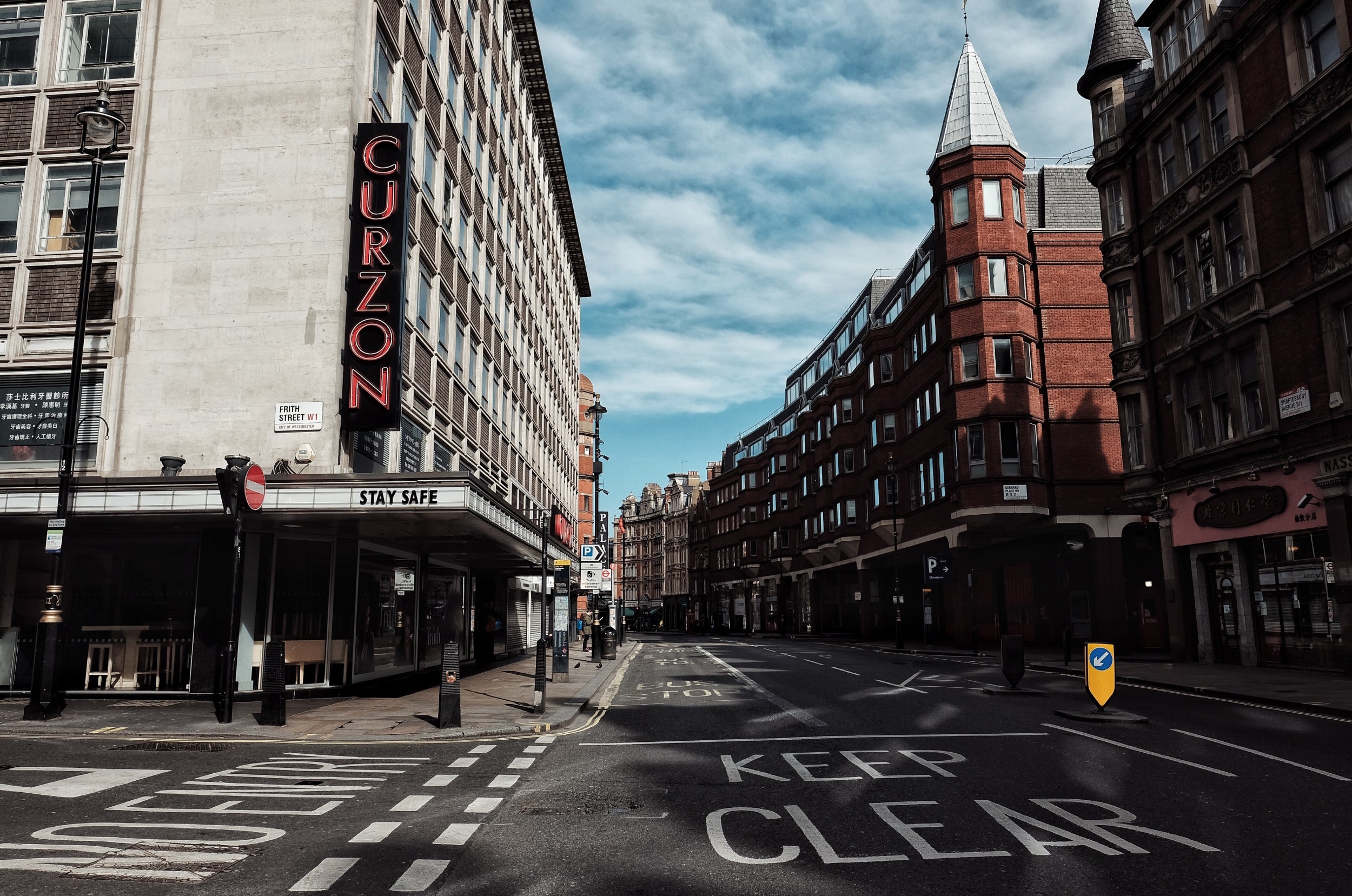
18/29
‘Stay Safe’ – Curzon cinemas are temporarily closed under the new measures
Angela Christofilou
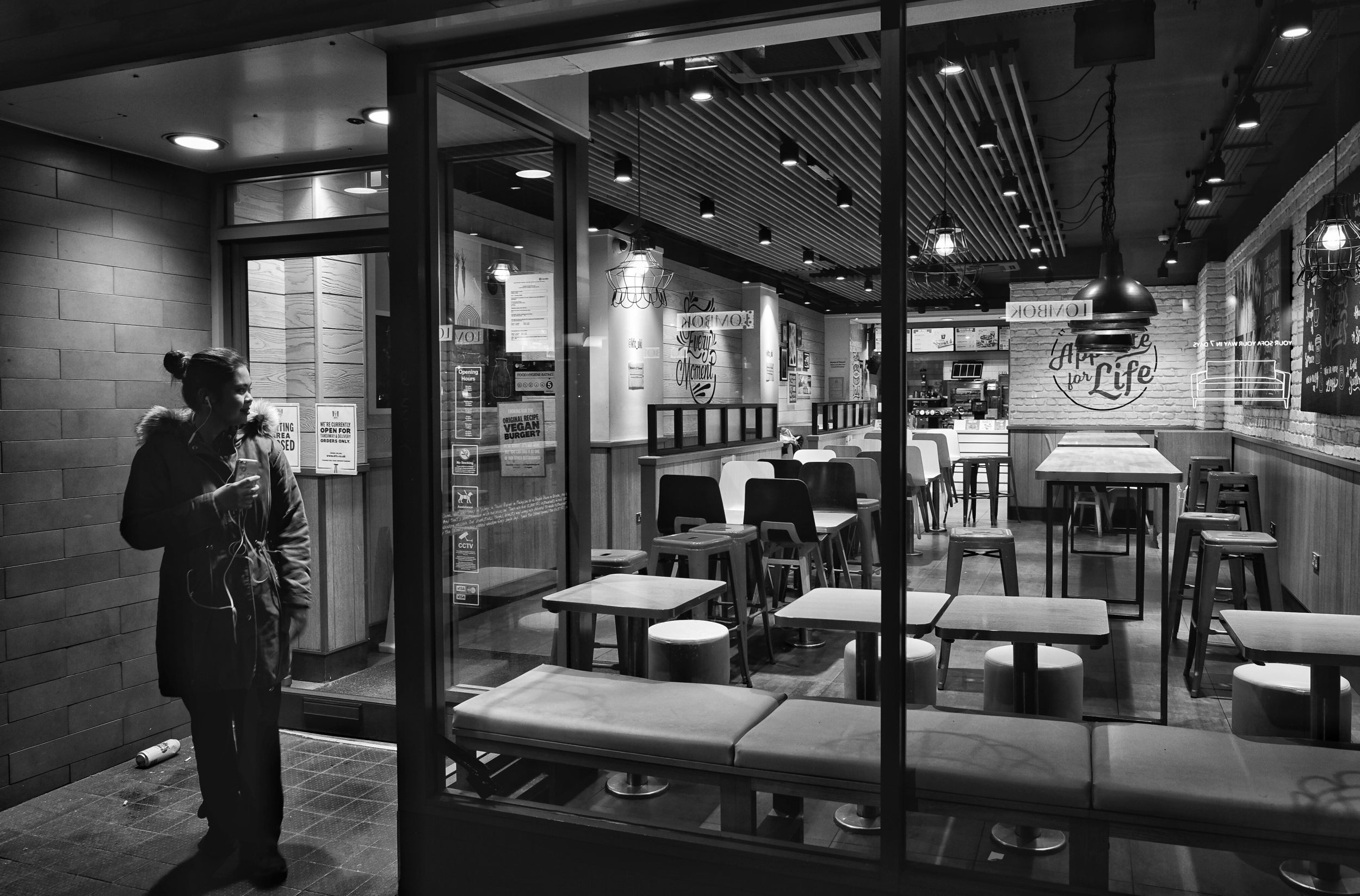
19/29
Pubs, restaurants and bars were ordered to shut as part of the lockdown
Angela Christofilou
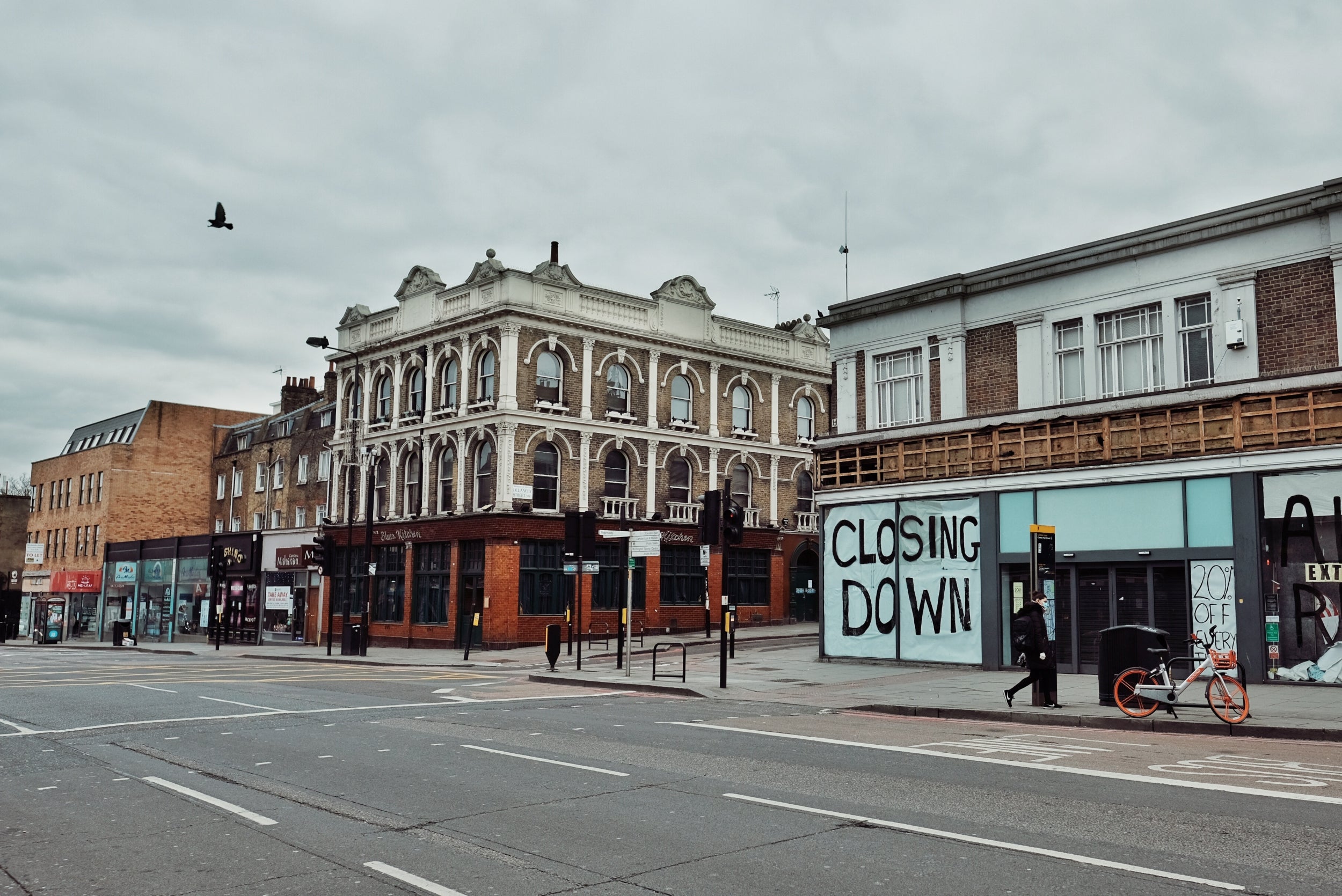
20/29 Camden High Street
There are fears that coronavirus could lead to permanent closure of struggling shops
Angela Christofilou
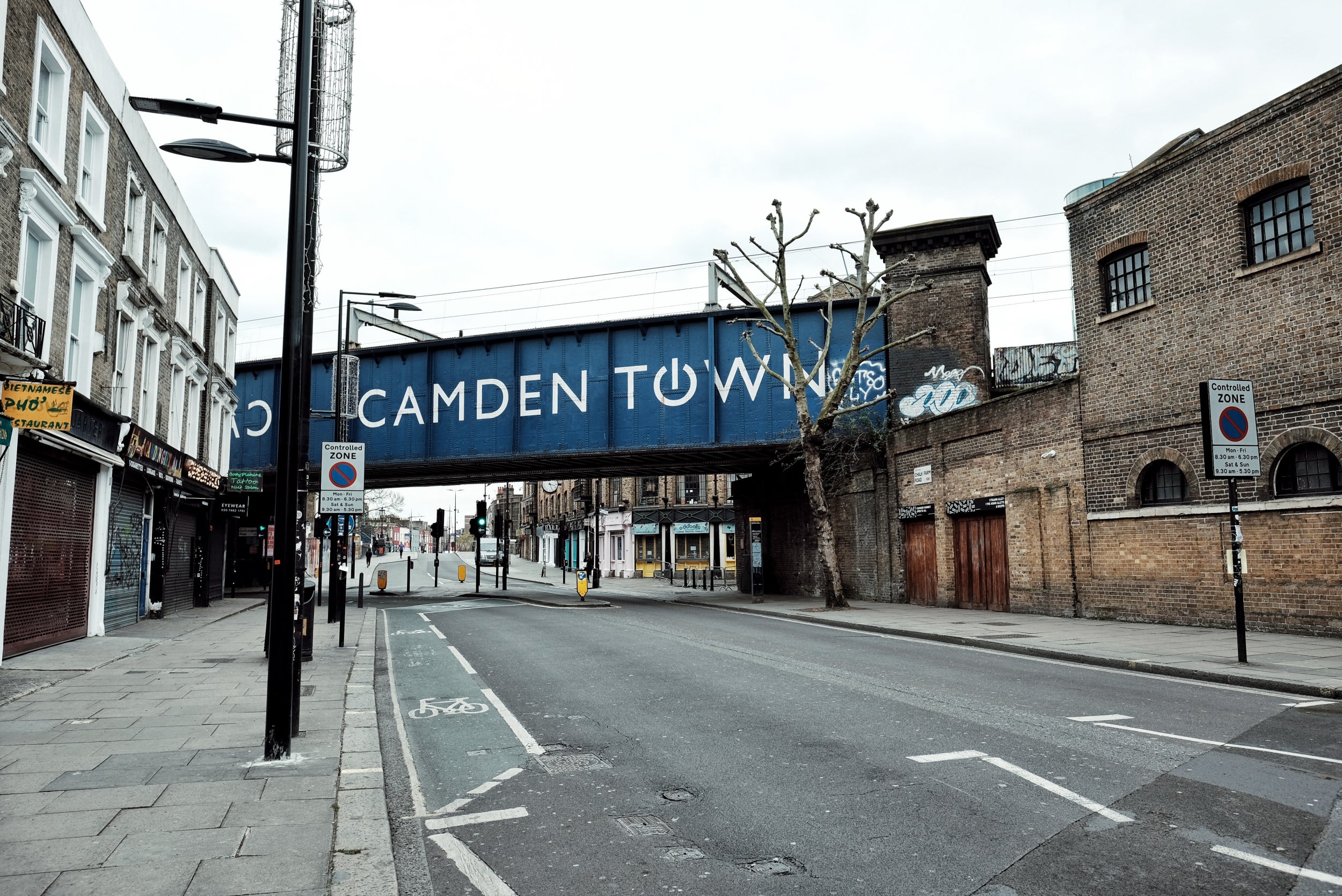
21/29
Camden Town is eerily silent on a normal working day
Angela Christofilou
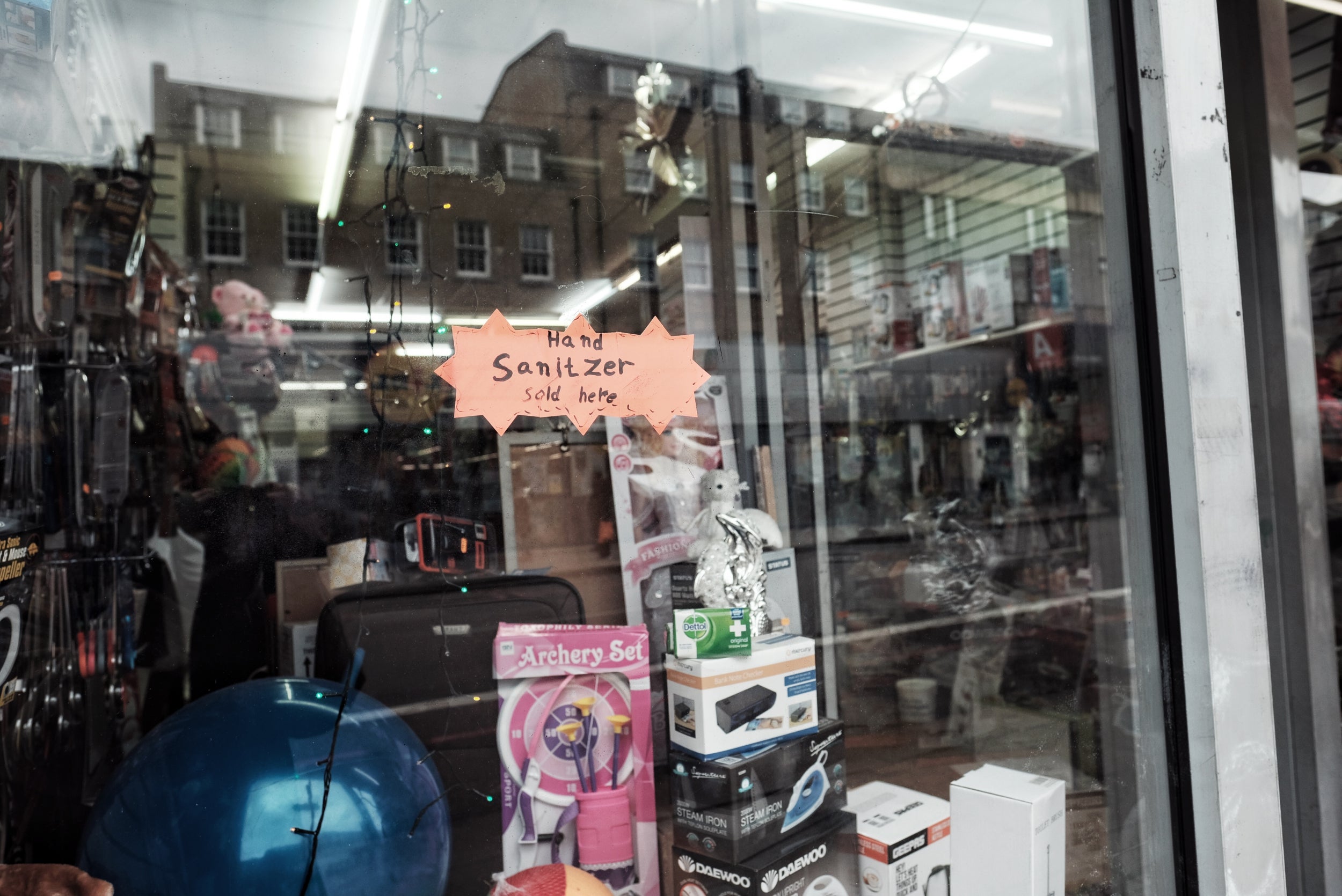
22/29
Shops and supermarkets ran out of hand sanitisers in the first week of the lockdown. As we approach the end of the second week most shops now have started to stock up
Angela Christofilou
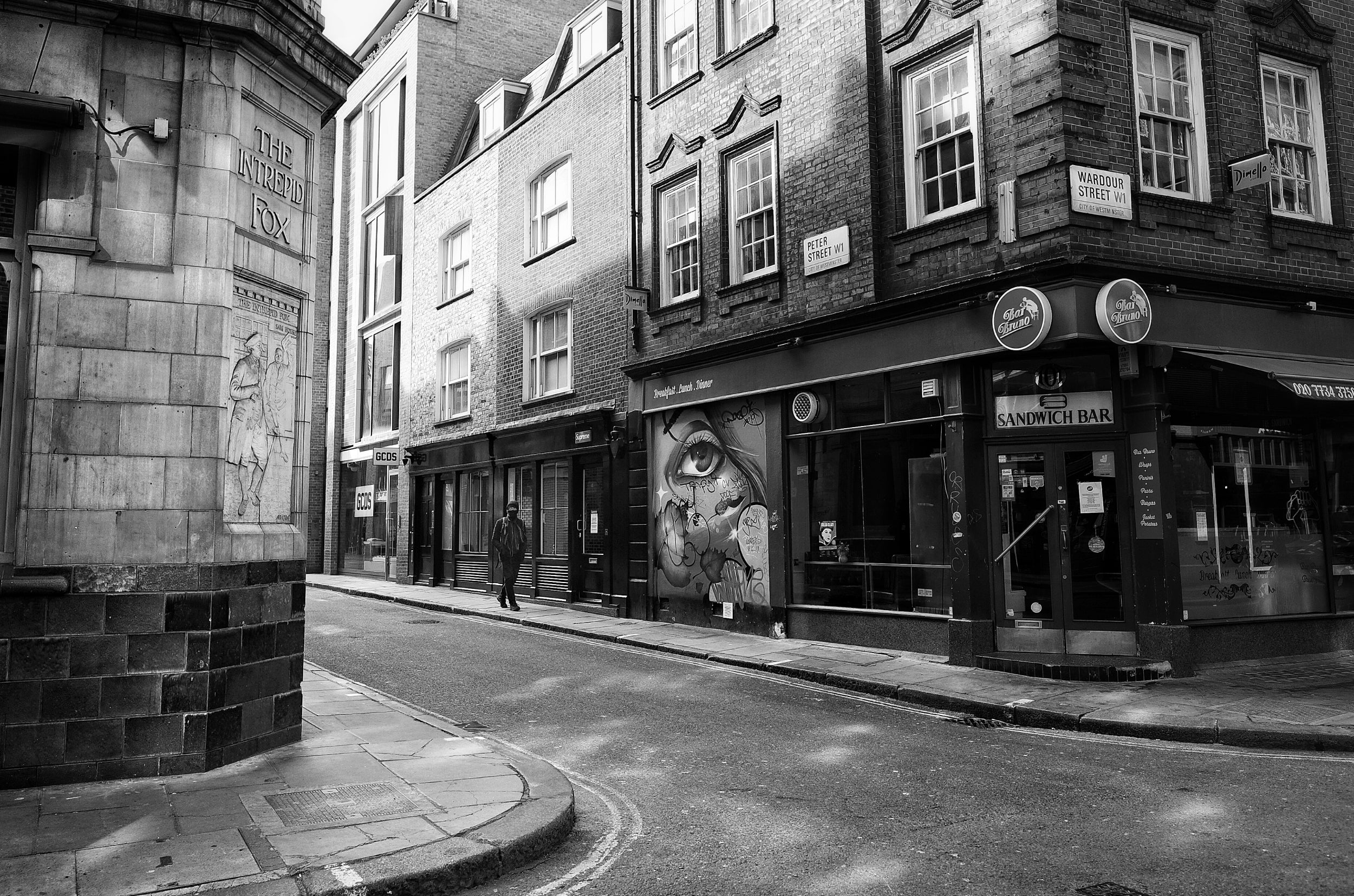
23/29
Empty streets around Soho
Angela Christofilou
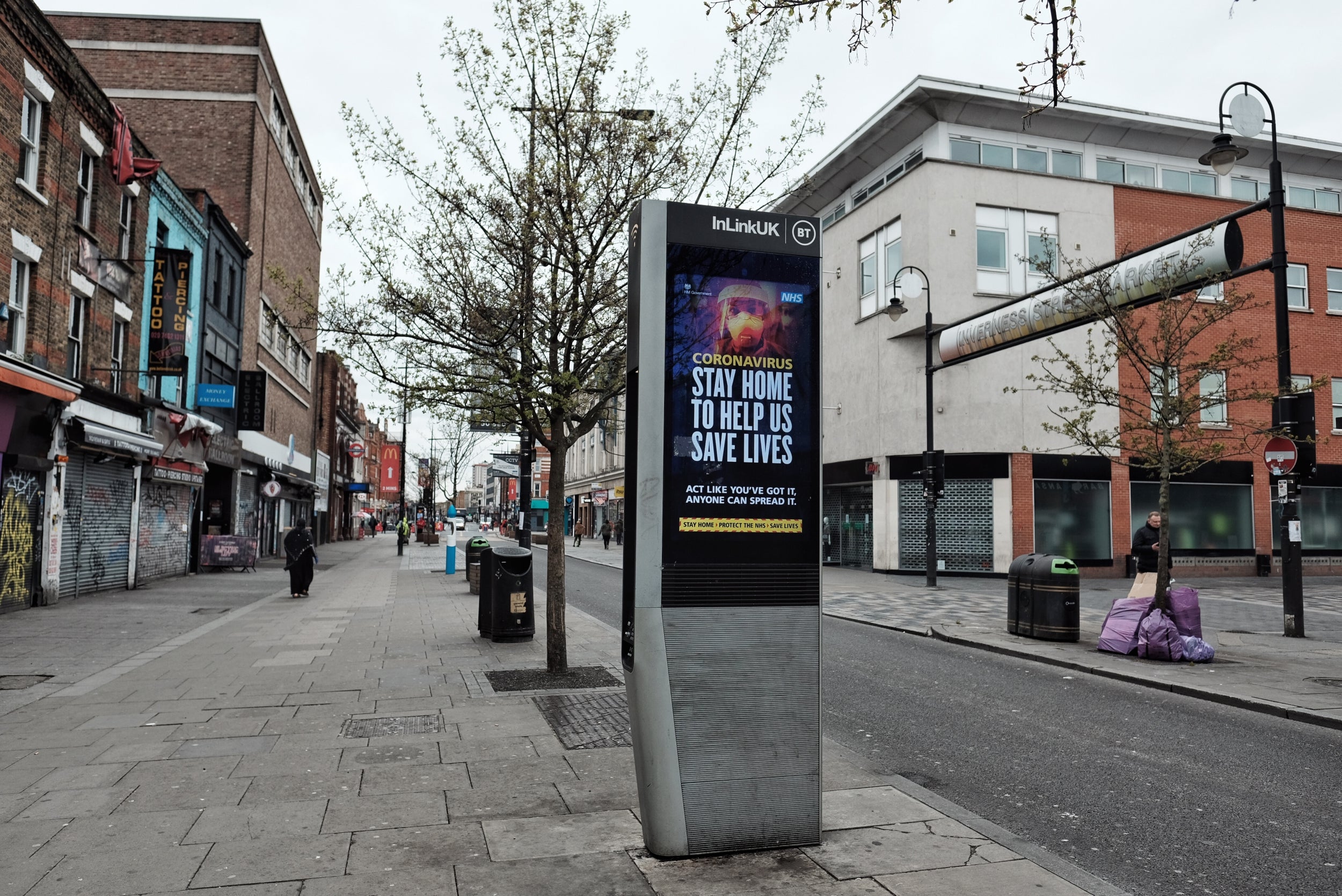
24/29
A noticeboard on Camden High Street urges the public to stay at home
Angela Christofilou
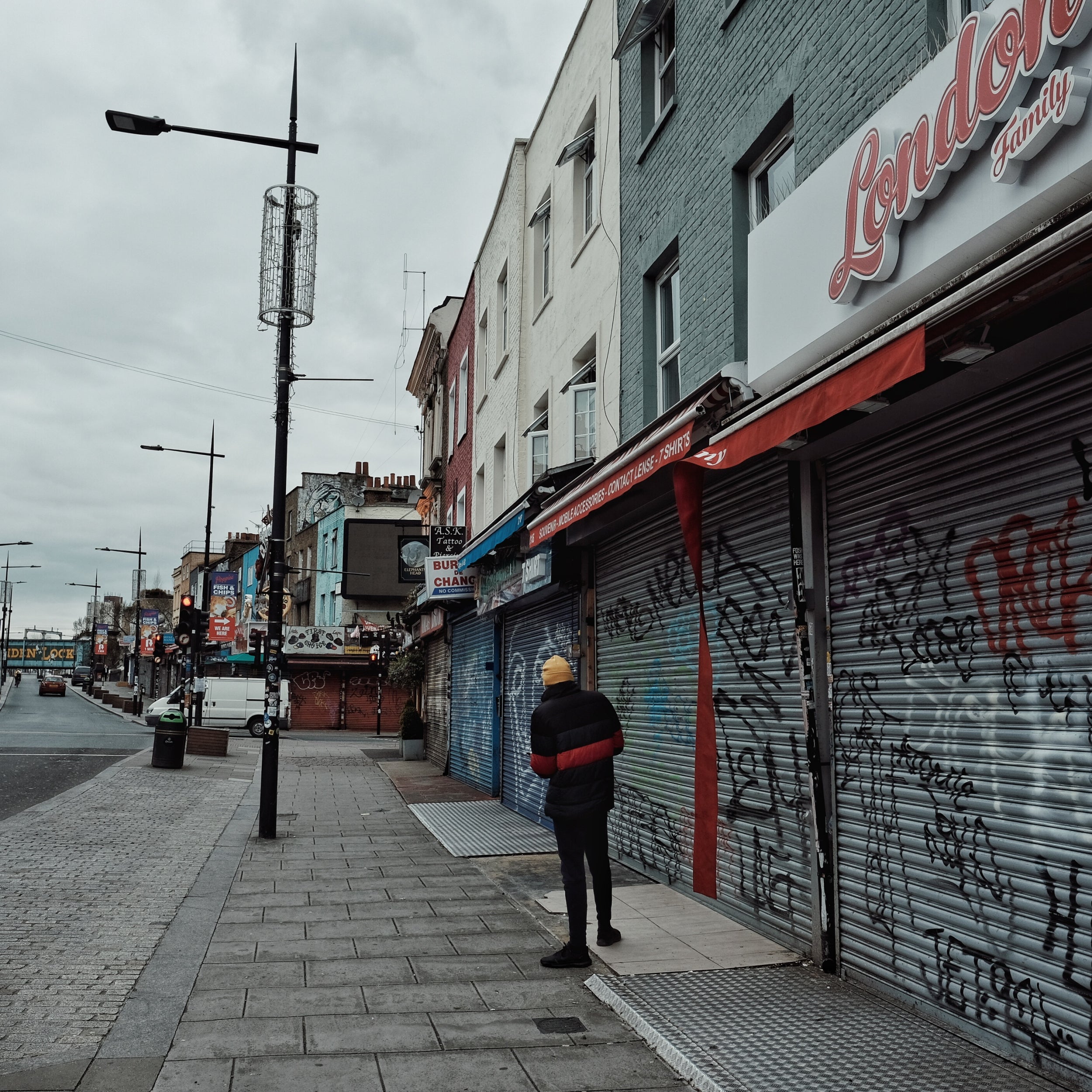
25/29
Camden High Street, one of London’s busiest tourist streets turns quiet
Angela Christofilou
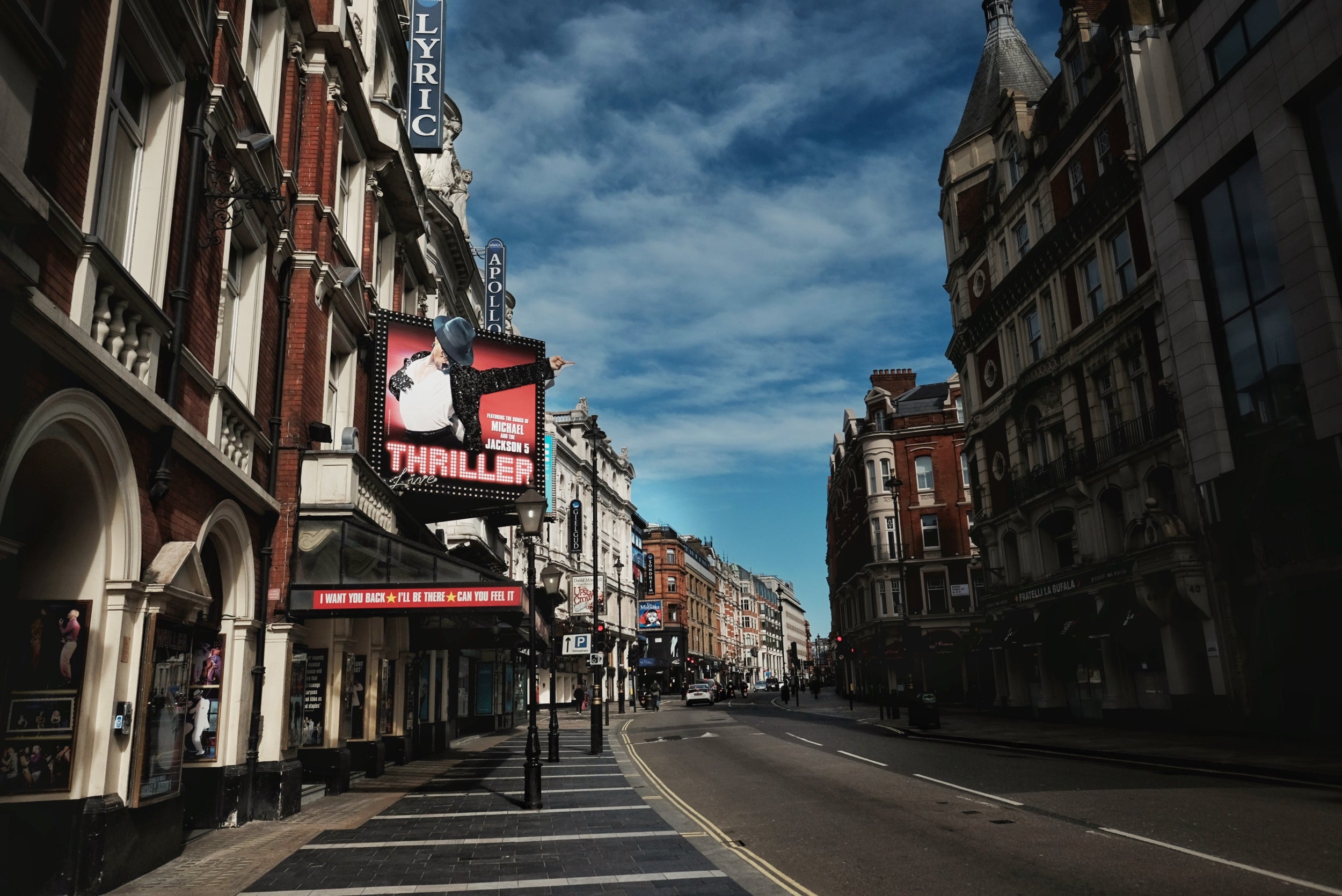
26/29
Thriller Live confirmed its West End run ended in the wake of the coronavirus outbreak
Angela Christofilou
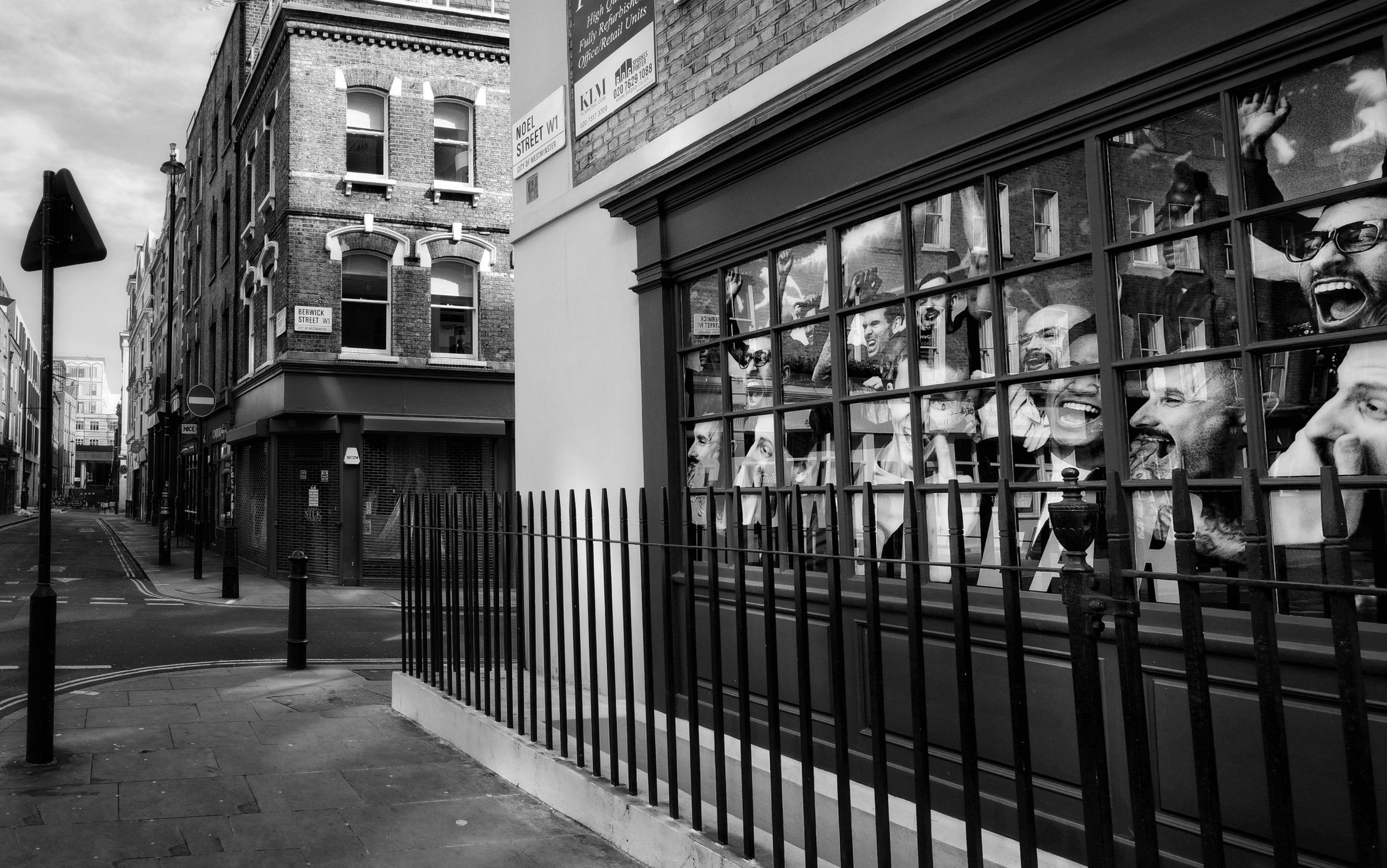
27/29
Empty and eerie Soho streets after stricter rules on social distancing announced
Angela Christofilou
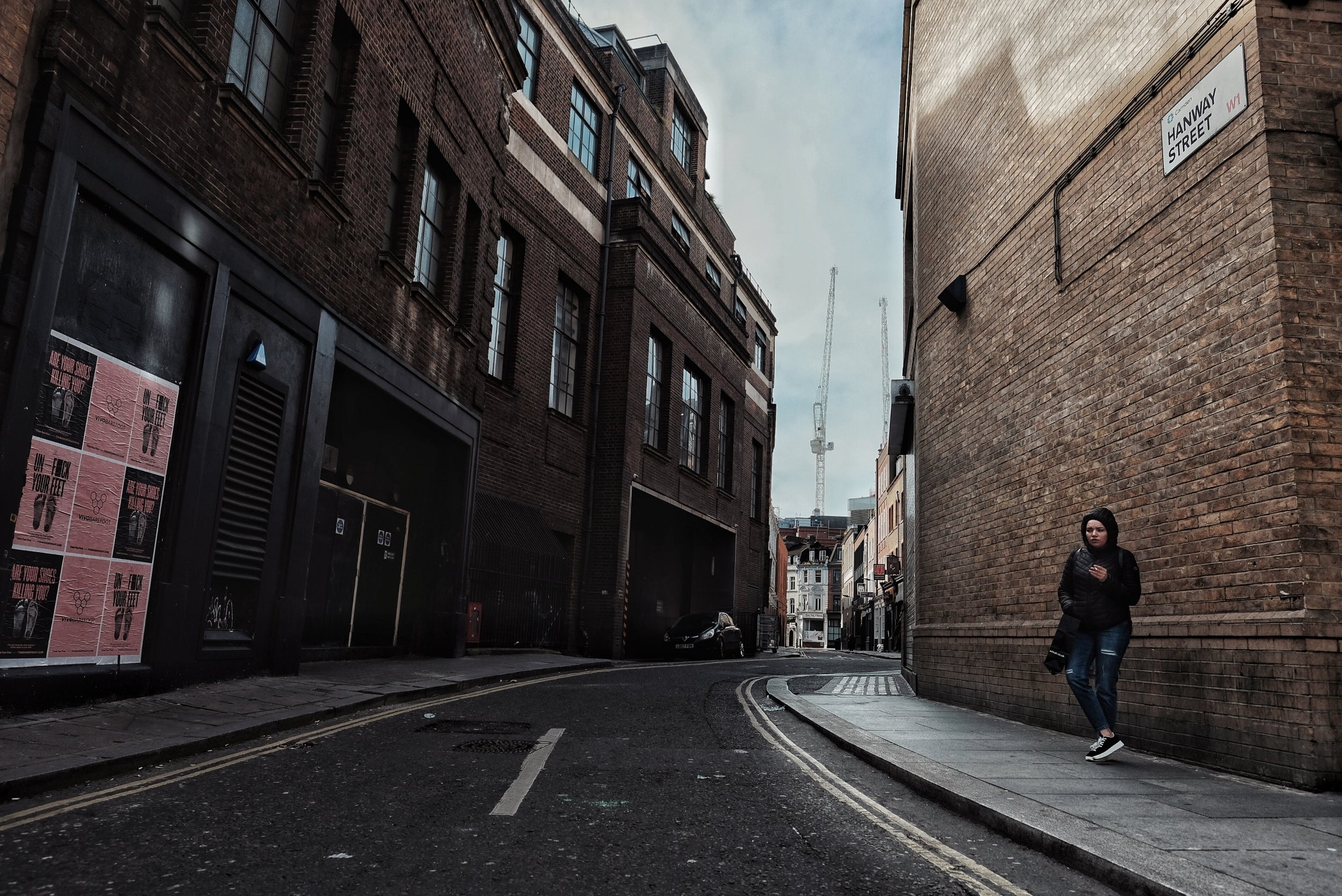
28/29
A woman pauses for a cigarette on Hanway Street, behind Tottenham Court Road
Angela Christofilou
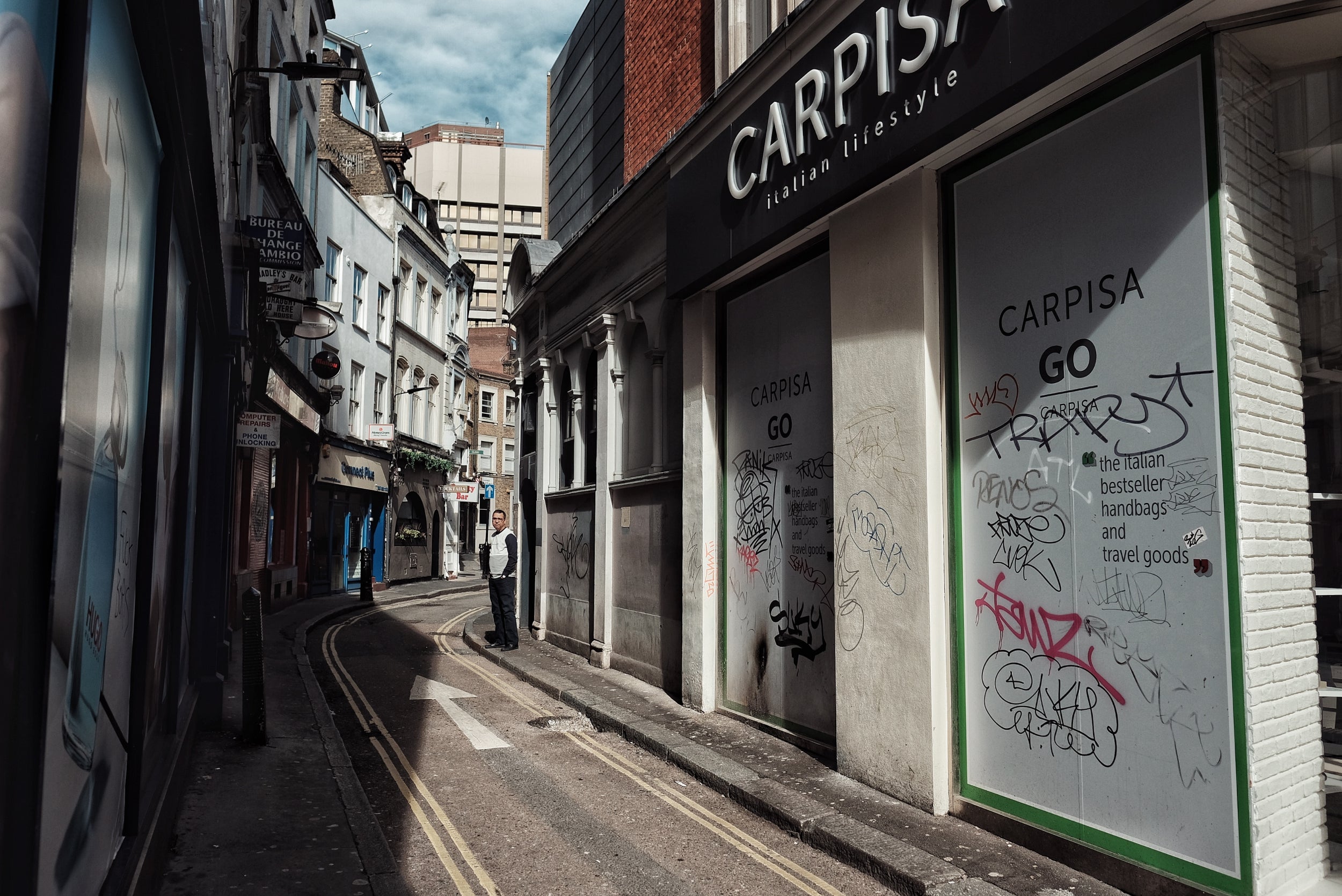
29/29
A man steps outside onto Hanway Street, that sits behind what is usually a bustling retail hub
Angela Christofilou

1/29
A man walks down a deserted Camden High Street
Photos Angela Christofilou

2/29
Goodge Street Station is one of the many stations closed to help reduce the spread
Angela Christofilou

3/29
An empty street in the heart of Chinatown
Angela Christofilou

4/29
People in masks in Chinatown a day after the lockdown
Angela Christofilou

5/29
A near-empty Piccadilly Circus during the first week of lockdown
Angela Christofilou

6/29
Sonja, my neighbour, who I photographed while taking a short walk. It was nice to briefly chat even from a distance
Angela Christofilou

7/29
A couple sit on the empty steps of the statue Eros in Piccadilly Circus
Angela Christofilou

8/29
Making sure I stay two-meters apart – D’Arblay Street, Soho
Angela Christofilou

9/29
A mannequin behind a shop window. UK stores have closed until further notice
Angela Christofilou

10/29
A notice displayed on a shop window in Camden
Angela Christofilou

11/29
As part of the lockdown, all non-essential shops have been ordered to close.Image from Camden High Street
Angela Christofilou

12/29
A skateboarder wearing a mask utilises his exercise allowance in the Camden area
Angela Christofilou

13/29
Communities have been coming together in a time of need
Angela Christofilou

14/29
A woman stands alone in a deserted Oxford Street. Up until a few weeks ago, on average, half a million people visited the street per day
Angela Christofilou

15/29
A couple walk hand in hand down a street in Soho, a day before the stricter lockdown was announced
Angela Christofilou

16/29
During the first week of March, shoppers focused on stockpiling necessities ahead of a countrywide lockdown
Angela Christofilou

17/29
Many supermarkers are operating a queuing system to make sure only a limited amount of customers are allowed in at anyone time
Angela Christofilou

18/29
‘Stay Safe’ – Curzon cinemas are temporarily closed under the new measures
Angela Christofilou

19/29
Pubs, restaurants and bars were ordered to shut as part of the lockdown
Angela Christofilou

20/29 Camden High Street
There are fears that coronavirus could lead to permanent closure of struggling shops
Angela Christofilou

21/29
Camden Town is eerily silent on a normal working day
Angela Christofilou

22/29
Shops and supermarkets ran out of hand sanitisers in the first week of the lockdown. As we approach the end of the second week most shops now have started to stock up
Angela Christofilou

23/29
Empty streets around Soho
Angela Christofilou

24/29
A noticeboard on Camden High Street urges the public to stay at home
Angela Christofilou

25/29
Camden High Street, one of London’s busiest tourist streets turns quiet
Angela Christofilou

26/29
Thriller Live confirmed its West End run ended in the wake of the coronavirus outbreak
Angela Christofilou

27/29
Empty and eerie Soho streets after stricter rules on social distancing announced
Angela Christofilou

28/29
A woman pauses for a cigarette on Hanway Street, behind Tottenham Court Road
Angela Christofilou

29/29
A man steps outside onto Hanway Street, that sits behind what is usually a bustling retail hub
Angela Christofilou
“From the lack protection for frontline health and care workers to the complete mess the government have made of testing, ministers have questions to answer.”
The latest news on Brexit, politics and beyond direct to your inbox
Ian Blackford, the Scottish National Party leader, told The Independent: “When this is over, it is inevitable that there will have to be a review on the government response.
“This is not about pointing fingers or laying blame but simply about the responsibility to review actions taken.”
Caroline Lucas, the Green MP, said: “If tens of thousands of deaths in the first pandemic for 100 years doesn’t merit a public inquiry, I don’t know what does. Taking stock, as Dominic Raab suggests, doesn’t cover it at all.”
And Daniel Machover, a public inquiry solicitor, said: “A public inquiry along the lines of the Grenfell Tower inquiry would be the best way to determine how well the government has handled this crisis.
“Inquiries conducted by civil servants behind closed doors or by politicians on select committees can be beholden to whoever is in power – questions can be withheld and avoided; witnesses can be missed.”
The Chilcot inquiry into the Iraq War invasion was able to take evidence in public from Tony Blair and other architects of the invasion, although it was criticised for taking seven years to public conclusions.
Theresa May conceded a public inquiry into the Grenfell tragedy – but no similar probe took place into the origins of the 2008 financial crash.
No 10’s stance has been backed by Labour leader Keir Starmer, whose spokesman said: “The priority now has got to be on how the government fixes the current mistakes it is making.”


